- ~ Home
- The Way of St. Francis
- Exploring Citerna, Italy
Jump to Way of St. Francis Stages
Exploring Citerna, Italy
Disclosure: the PilgrimageTraveler.com is an associate of Booking.com, Roamless, and Amazon. As associates of these merchants, we earn from qualifying purchases from our links.
Exploring Citerna, Italy was our goal at the conclusion of our fourth day on the Way of St. Francis. This small town, perched on a steep hill is a gorgeous, well-preserved medieval place, with many places that the pilgrim must see! It sits on the edge of Umbria, just after the pilgrim crosses from Tuscany, earlier in the walk from Sansepolcro.
Here is a fabulous aerial photo of Citerna, that I borrowed from the Umbria tourism website. It is such a gorgeous photo. And the town itself will not disappoint. Citerna is known as one of the most beautiful cities in Italy, "uno dei borghi piu belli d'italia," and it is easy to see why.
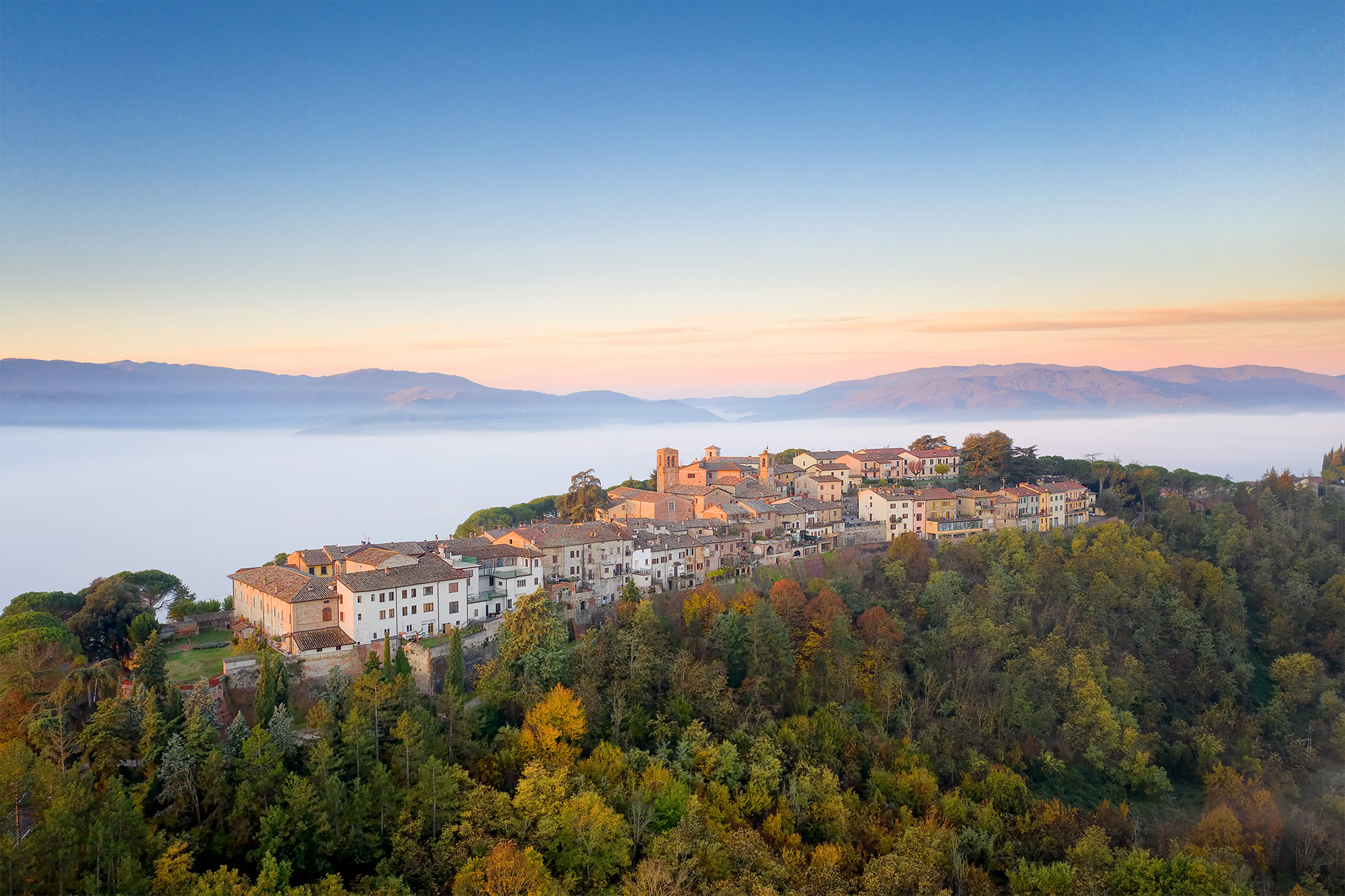 Aerial View of Citerna
Aerial View of Citerna🙋♀️ Why Trust Us at the Pilgrimage Traveler?
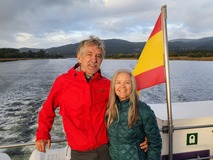
We’re not a travel agency ~ we’re fellow pilgrims! (See About Us)
We've trekked Pilgrimage Routes Across Europe since 2014!
💬 We’ve:
- Gotten lost so you don’t have to. 😉
- Followed waymarks in the glowing sunlight, the pouring rain and by moonlight. ☀️🌧️🌙
- Slept in albergues, hostels & casa rurals. Ate and drank in cafés along the way. 🛌 😴
- Created comprehensive and downloadable GPS maps and eBook Guides, full of must-have information based on real pilgrimage travels. 🧭 🗺️
- Shared our complete journeys, step by step to help YOU plan your ultimate pilgrimage and walk with your own Heart and Soul. 💙✨
Every detail is from our own experiences. Just fellow pilgrims sharing the Way. We have added a touch of spirituality, heartfelt insights and practical guidance from the road ~ offering a genuine connection to the spirit of pilgrimage. Tap into the wisdom of seasoned pilgrims!
Ultreia and Safe Pilgrimage Travels, Caminante! 💫 💚 🤍
Architecture, of all the arts, is the one which acts the most slowly, but the most surely, on the soul. ~ Ernest Dimnet
Map for Exploring Citerna, Italy
For such a small city, Citerna packs a punch and will definitely touch your soul! As you leave the Monastero Della Ss. Crocifisso E S. Maria, the only pilgrim accommodation in Citerna, it is a short walk up the hill of 800 meters to the center of town. The monastery, also old, was established in the 14th century!
To circumnavigate Citerna in its entirety, it is only about 3/4 kilometers total, so you can cover this easily in an evening. It is worth a walk around the perimeter, as the walls are very well preserved!
The main attractions are on the main street called the Corso Garibaldi, as you can see on my map below, if you zoom into Citerna (at the end of the stage). This map will help you quickly and easily find your way around and find accommodation if the monastery is full.
👣 Way of St. Francis EBook Guide
Walk smarter with our ad-free, beautifully formatted Way of St. Francis eBook Guide, La Verna to Assisi,* in PDF format ~ perfect for offline use in mountainous and remote areas along this Way. Includes daily stage details, alternative routes and stunning photos. Our eBook Guide is unique because we also immerse you with our story.
Don't carry a heavy paper book, but use our digital eBook on your mobile device instead! You can walk with clarity and confidence, deeply connect to nature, following in the footsteps of St. Francis, through the Italian countryside!
📲 Instant download. 💸 Money-back guarantee. 🔄 Free updates for 1 year.
👉 Click here for more information OR BUY NOW.
*Please note that our eBook for the Southern Route from Assisi to Rome will be available in early 2026!
Jump to Way of St. Francis Stages
Brief History for Exploring Citerna, Italy
Citerna has been settled since the pre-Roman Etruscans. Once conquered by them, as a Roman city, Citerna was known as Civitas Sobariae. Because of its location, high above the Tiber River, Citerna was used as a lookout for military movements.
The modern name "Citerna" is supposedly taken from the Italian word for cisterns that are underneath the town and were used in the times of siege.
After the Romans, barbarians and powerful families from the neighboring cities of Sansepolcro and Città di Castello fought over Citerna for centuries. In 1221, Citerna swore loyalty to Città di Castello in exchange for protection against the surrounding powers until it was eventually given over to the Papal states in 1463.
During the Renaissance in the early 1500's, Citerna was given as a vicariate to the wealthy Vitelli family, who controlled the town until the end of the century. Fortunately, like the famous Medicis of Florence, they not only were lords, but philanthropists. They ensured that artwork and monuments were placed in town, from famous artists like Donatello, Pomarancio and Signorelli.
Most of the medieval buildings that survive in Citerna were from the Renaissance period. Unfortunately, many structures were damaged by the earthquake of 1917, and the main fortifications were also damaged in WWII. The famous watchtower, the Cassero Keep, survived intact, see farther below.
Citerna is also famous for giving refuge to General Giuseppe Garibaldi, the unifier of Italy, in July of 1849, during his leading the resurrection for independence from Austria. Hence the name of the main street, Corso Garibaldi.
Citerna became the first Umbrian town to be part of the Italian Kingdom in 1860.
Jump to Way of St. Francis Stages
Exploring Citerna, Italy in Photos
As you arrive into town from the east, the "Rocca di Citerna" fortress looms above you. It is impressive, even in its ruined state. Its origin harkens back to the Lombards (Longobards) from the 6th-8th centuries.
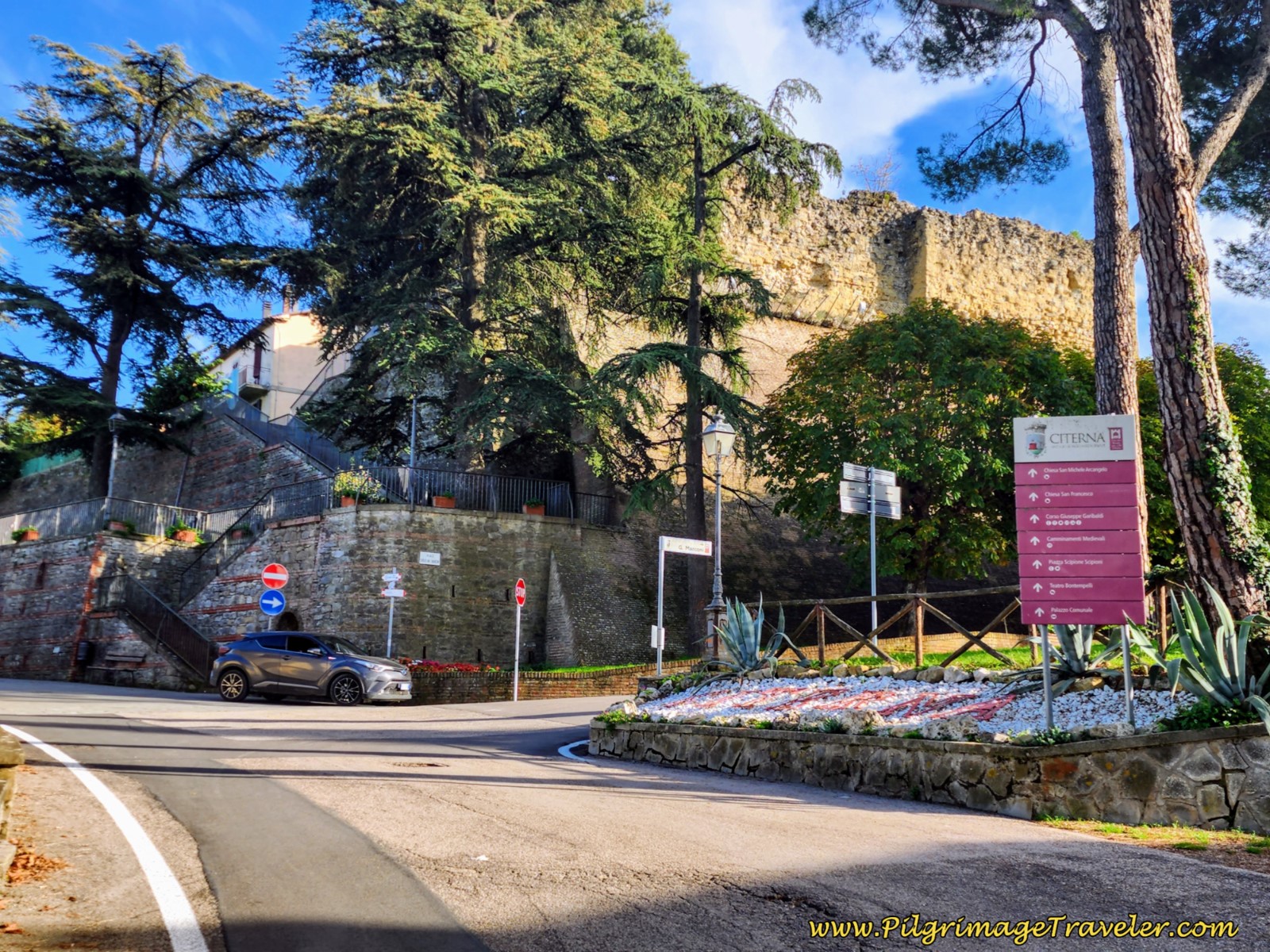 Entering Citerna on the Way of St. Francis
Entering Citerna on the Way of St. FrancisHere is a closer look of the dramatic stairway leading to the top. The enclosure at the top has been converted into a sort of outdoor museum. While the remains at the top are not impressive, the views from there are phenomenal, so it is worth the climb. There is also a stairway access from the south walls.
As you pass the steps and the Rocca, immediately the main Piazza, called Scipione Scipioni with its clock tower, comes into view.
There is the Bar Vita Frenetica at the foot of the clock tower and a terrace across from the bar. This terrace is the most amazing place to have food or happy hour!
Just up the hill from the Piazza, is the Chiesa San Michele Arcangelo. The 17th century Romanesque structure, with its simple rose window and interior, boasts paintings by several famous artists, mostly notably one of the crucifixion by Pomarancio. Click on the link for more information.
After visiting the Arcangelo church, when you exit, look to your right for an alleyway, and the historic theater, the Teatro Bontempelli. Its bell tower is visible for miles!
Walk towards the theater, which was closed on the Tuesday evening we were there, admire the façade and look over the terrace to the left and to the private bridge that connected the Vitelli private residence to the theater!
After your visit to the theater, return to the clock tower and continue on the Corso Garibaldi. Walk under the same Vitelli private bridge.
Immediately after the bridge is the Chiesa di San Francesco, known as the museum church. This church houses the most famous artwork in Citerna, Donatelli's Madonna, a sculpture from the Della Robbia school of ceramics. If you remember you saw similar ceramics in the churches of La Verna.
This is yet another simple church, but don't be fooled by its appearance as there are many famous treasures inside. Click on the above link to the church to read more.
Jump to Way of St. Francis Stages
The Story of the Aggressive Tour Guide!
As the three of us loitered outside the church, a man, who appeared to be a guide or a local townsperson, arrived with a woman.
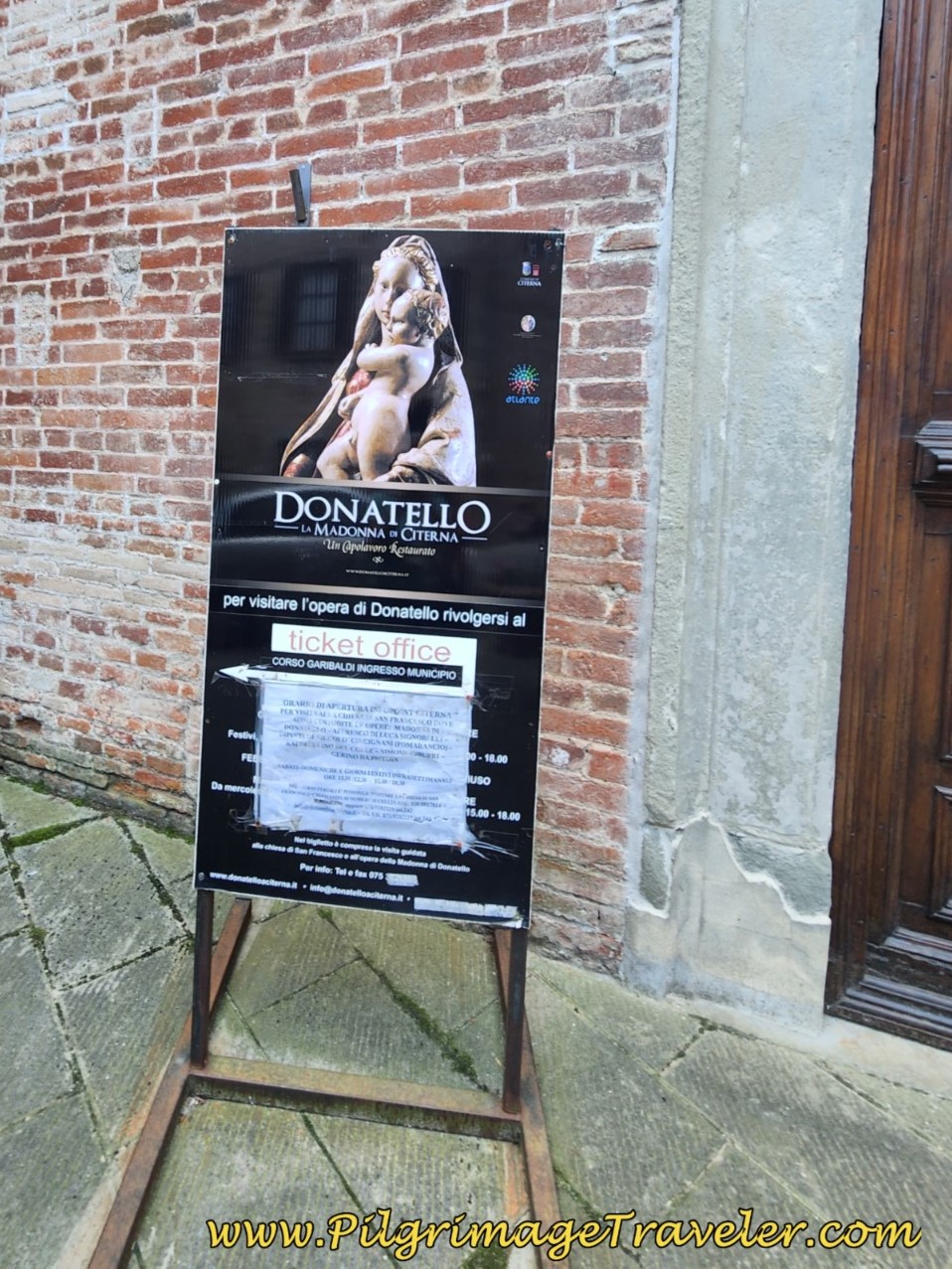 Donatello's Famous La Madonna di Citerna
Donatello's Famous La Madonna di CiternaHe offered for us to join him in his tour and see inside the church for free, since we were pilgrims. Because Nick speaks Italian and could interpret for us, we readily agreed.
Well, you get what you pay for, I suppose, because we stood outside the church for what seemed like an eternity while he was jabbering away in Italian. Nick stated that he was giving random stories about the town and the people of the town!
Nick began to have a strange look on his face. Rich and I understood nothing. We, however, persisted and were led inside the simple church. At each painting, our "guide" spent about 10-15 minutes explaining something in great detail that we didn't understand.
Rich and I began to make eyes at one another. I just wanted to see the Donatello. I felt some tension building between Nick and the guide. I remembered thinking that there was something really weird going on. I tried to catch Nick's eyes, but he was being so very polite.
To make a long story short, the "guide" began challenging Nick, as he was explaining a painting that we approached. He couldn't believe that Nick hadn't heard of the Renaissance artist, Luca Signorelli from Citerna and he demanded to know what guide book Nick had!
Nick kept explaining that he didn't have a guide book, but the man insisted that everyone has a guide book! The man kept getting more angry and started verbally accosting Nick. Nick started to get red-faced, remained polite and kept saying, "Scusi, Scusi." He was clearly trying to make an exit. Rich and I bowed our heads and headed for the door. Nick followed soon after.
Unfortunately, because of this incident, we did not see the Donatell0! As we debriefed, we felt it was most certainly better to rescue Nick from the torture than to see the sculpture. Poor Nick! We could admire a photo of the Madonna and Child.
If in your exploring Citerna, Italy you visit the Church of San Francisco, make sure you don't speak Italian, so you can avoid our fate, OR pay your ticket! I surely wish we had!
Jump to Way of St. Francis Stages
Back on the Corso Garibaldi ~ Exploring Citerna, Italy
A few meters farther on the main street is the Palazzo Communale, the municipal building and an all-important ATM.
And just beyond the municipal building is perhaps the most famous and unusual attraction of all, the Camminamento Medievale or the Medieval Walkway. Here is a photo of the unmistakable entrance.
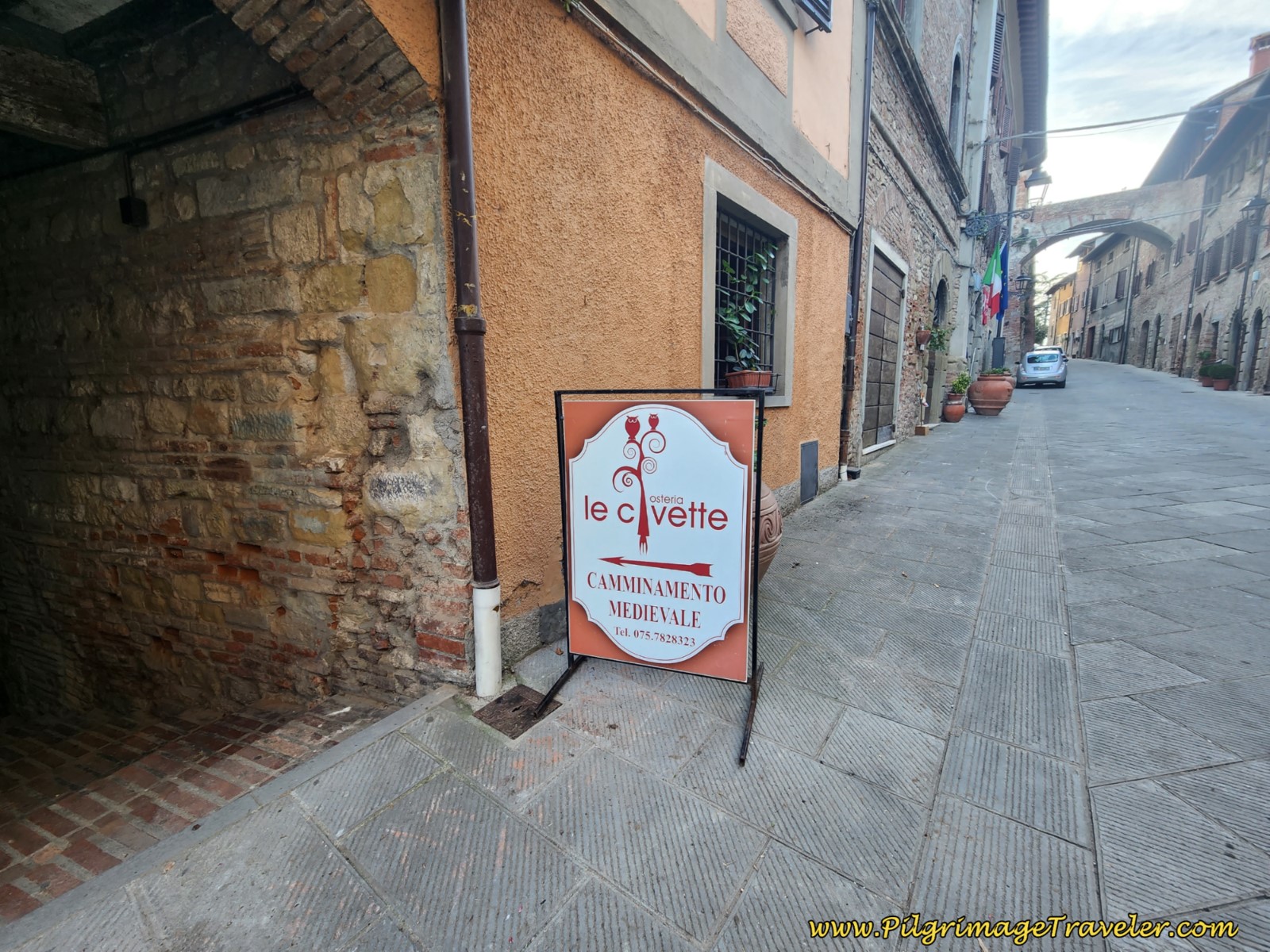 Entrance to the Camminamento Medievale
Entrance to the Camminamento MedievaleI just adore stuff like this: medieval tunnels and secret passageways! This is perhaps one of the most unique medieval features I have ever seen. We turned into the dark passageway.
It is very nice to amble along this walkway, which we did in daylight, and then again at sunset, for a totally different feel. Taking photos through windows and archways was nice!
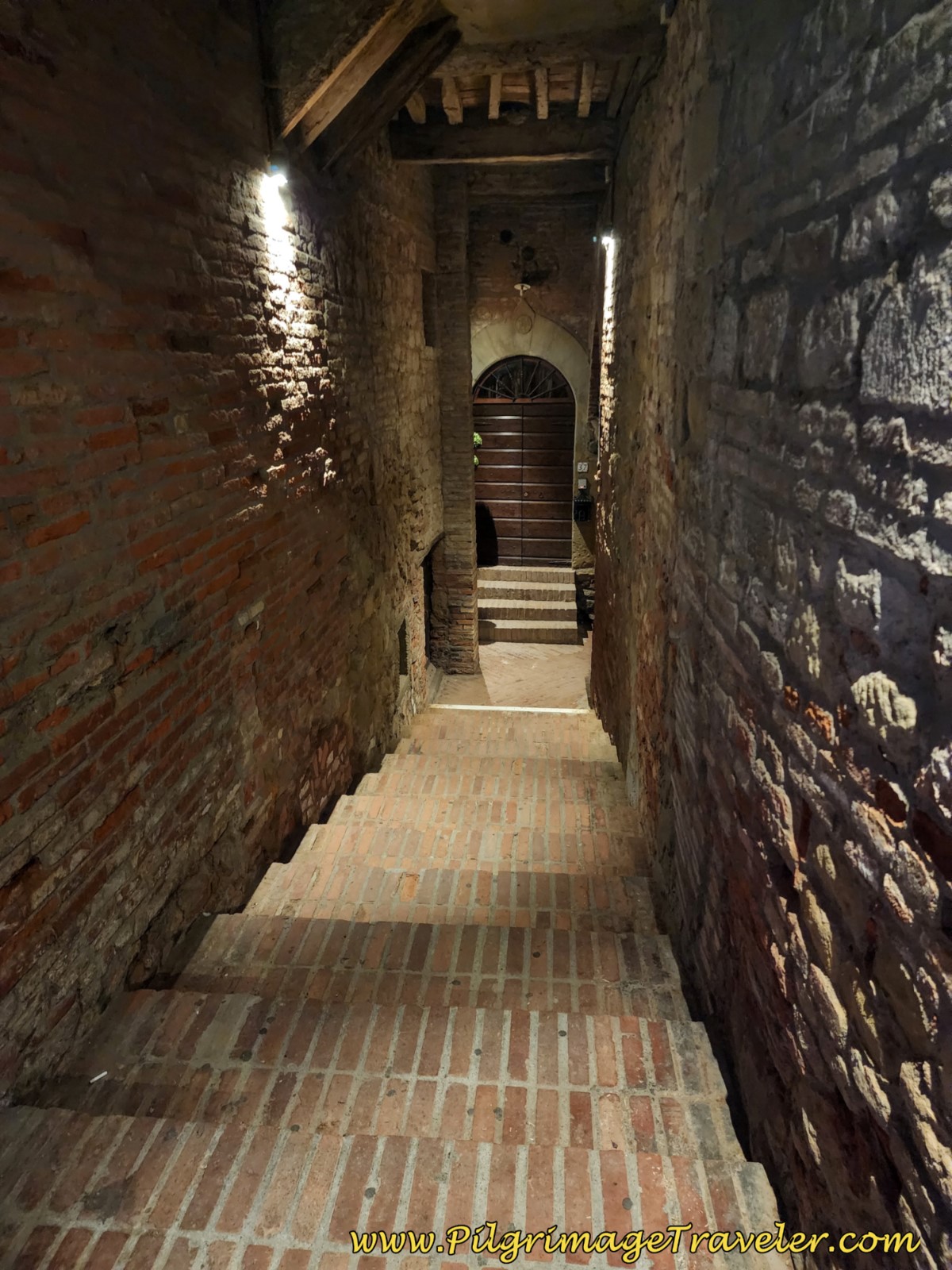 Down the Tunnels of the Medieval Walkway
Down the Tunnels of the Medieval Walkway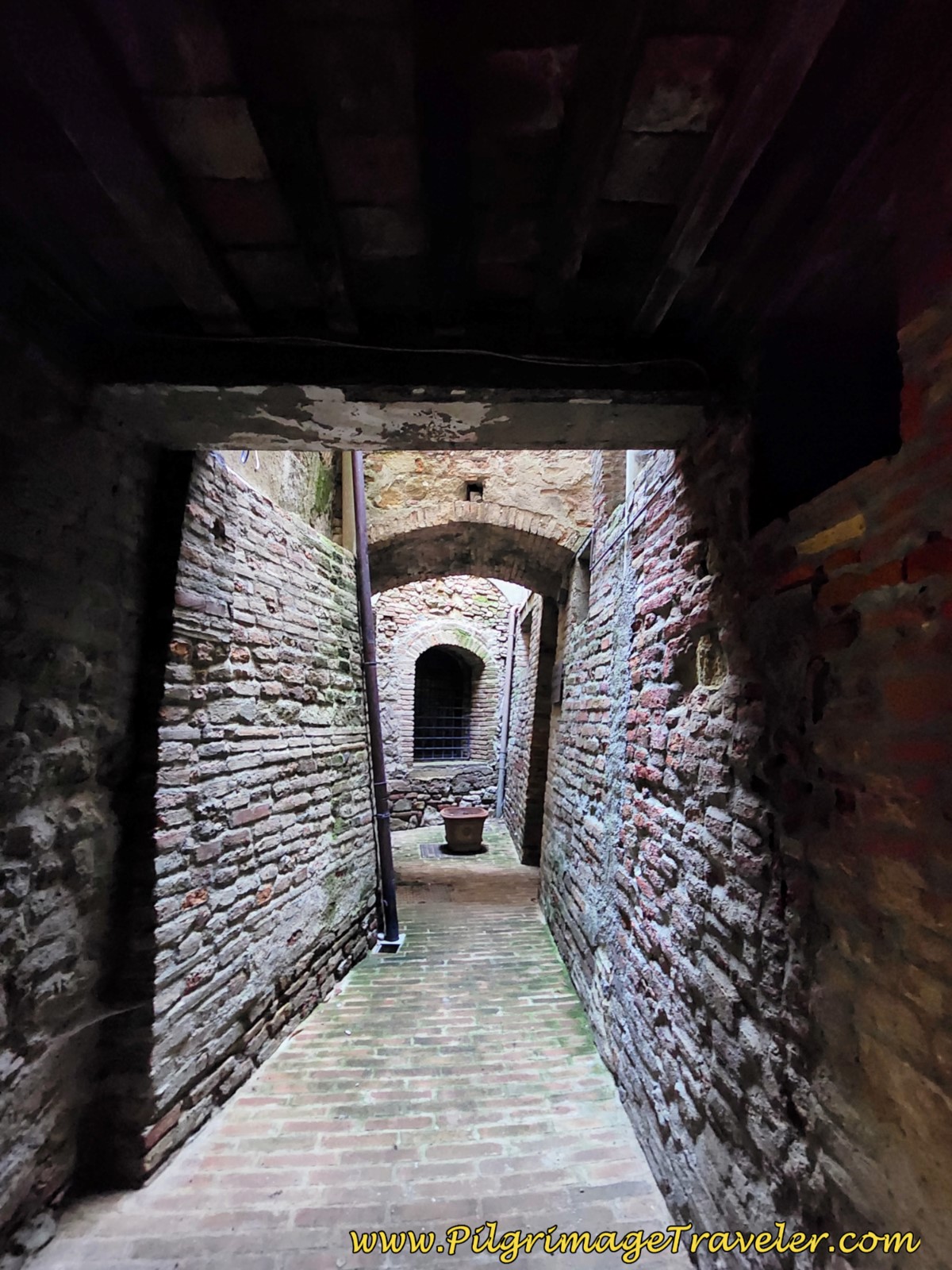 Continue Onward in the Medieval Tunnel
Continue Onward in the Medieval Tunnel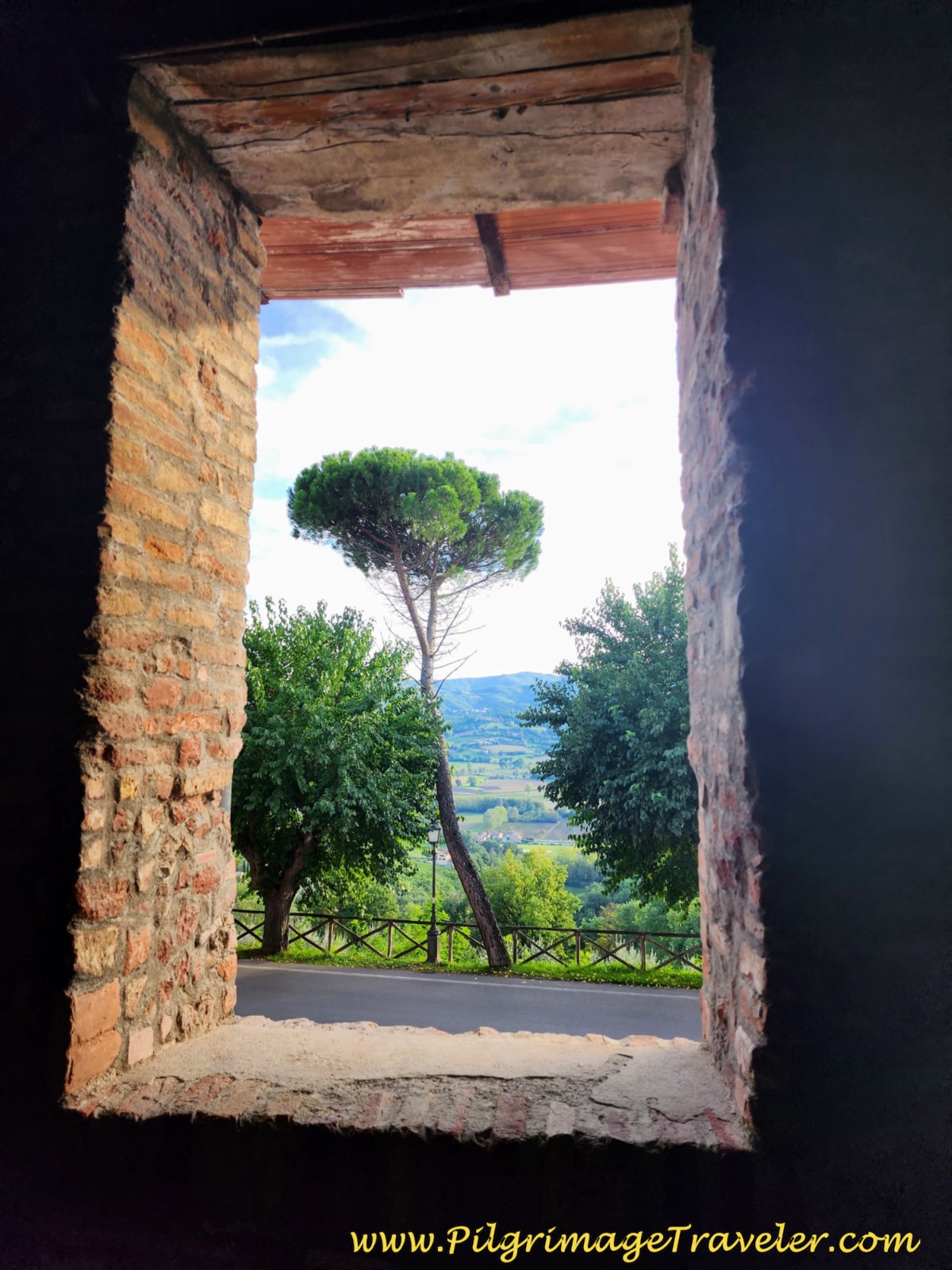 Picturesque View Through Walkway Window
Picturesque View Through Walkway WindowThe medieval walkway pops out onto the eastern end of Citerna. The exit of the walkway is just to the left of what is pictured below.
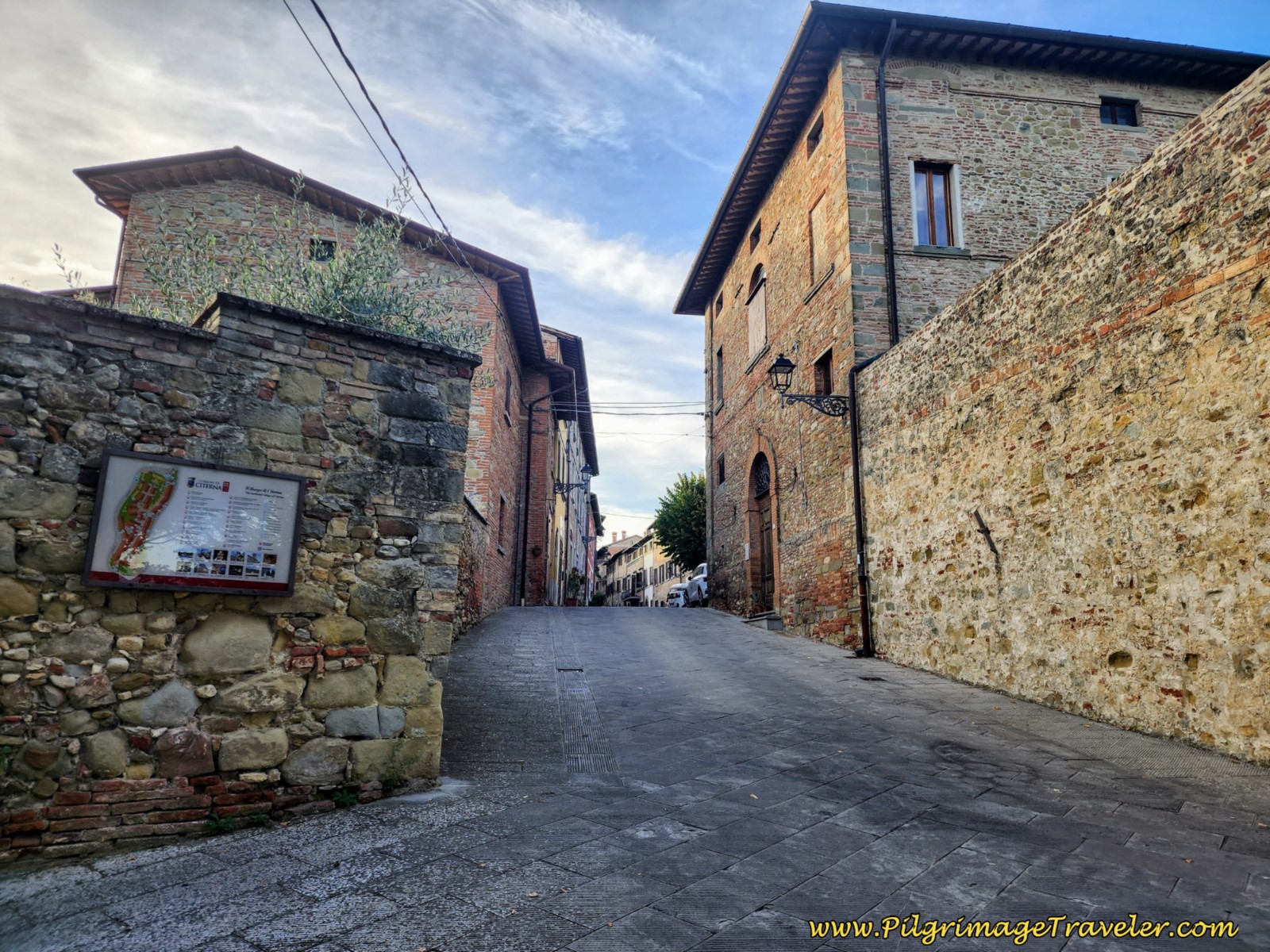 Eastern Gate to Citerna
Eastern Gate to CiternaWe decided to take a southern tour of the walls next.
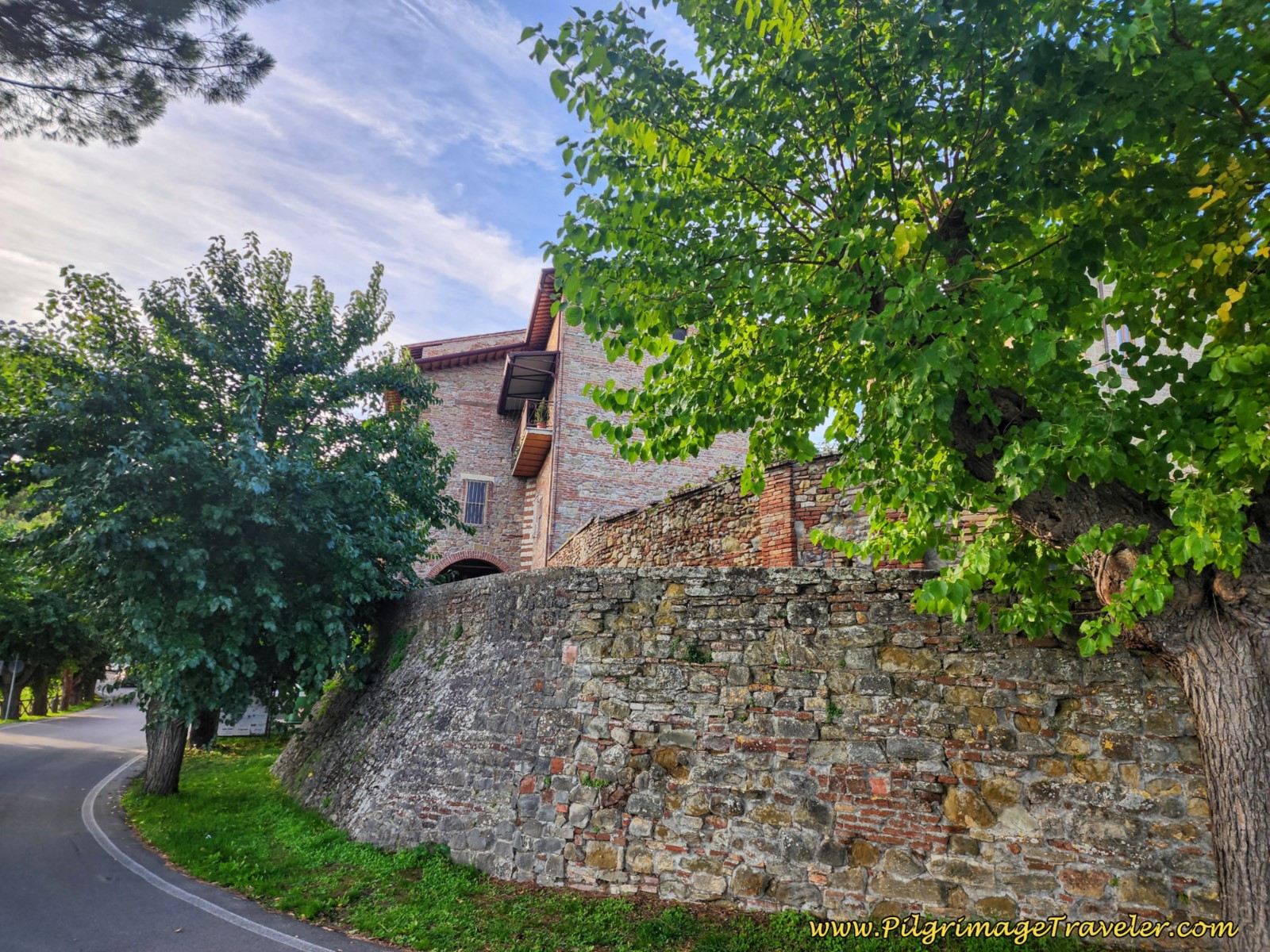 Along the Southern Wall of Citerna
Along the Southern Wall of CiternaJump to Way of St. Francis Stages
As noted above, this tower has survived the calamities of mother nature and war, totally intact.
After completing our circumnavigation of Citerna, we returned to the Piazza Scipione Scipioni to watch the remaining sunset and relax and have happy hour.
After happy hour we did another quick round of the walls to capture the best, almost night time photos. Here is my best:
After snapping this photo above, we headed over to the Belvedere for an amazing meal. A perfect ending for a near-perfect day.
Conclusion of Our Exploring Citerna, Italy
Here's a cheer for you and your own exploration journey to Citerna! This place certainly captured my heart, because of its state of preservation, its intimacy, ambience and the amazing views that were everywhere. May your own day here touch your soul as well!
Way of St. Francis Stages
Northern Route, Via del Nord ~ La Verna to Assisi
Southern Route, Via del Sud ~ Assisi to Rome
More Stages to Rome, Coming Soon!
Please Consider Showing Your Support
Many readers contact me, Elle, to thank me for all the time and care that I have spent creating this informative website. If you have been truly blessed by my efforts, have not purchased an eBook, yet wish to contribute, I am exeedingly grateful. Thank you!
Search This Website:
🙋♀️ Why Trust Us at the Pilgrimage Traveler?

We’re not a travel agency ~ we’re fellow pilgrims! (See About Us)
We've trekked Pilgrimage Routes Across Europe since 2014!
💬 We’ve:
- Gotten lost so you don’t have to. 😉
- Followed waymarks in the glowing sunlight, the pouring rain and by moonlight. ☀️🌧️🌙
- Slept in albergues, hostels & casa rurals. Ate and drank in cafés along the way. 🛌 😴
- Created comprehensive and downloadable GPS maps and eBook Guides, full of must-have information based on real pilgrimage travels. 🧭 🗺️
- Shared our complete journeys, step by step to help YOU plan your ultimate pilgrimage and walk with your own Heart and Soul. 💙✨
Every detail is from our own experiences. Just fellow pilgrims sharing the Way. We have added a touch of spirituality, heartfelt insights and practical guidance from the road ~ offering a genuine connection to the spirit of pilgrimage. Tap into the wisdom of seasoned pilgrims!
Ultreia and Safe Pilgrimage Travels, Caminante! 💫 💚 🤍
Follow Me on Pinterest:
Find the Pilgrimage Traveler on Facebook:
Like / Share this page on Facebook:
***All Banners, Amazon, Roamless and Booking.com links on this website are affiliate links. As an Amazon associate and a Booking.com associate, the Pilgrimage Traveler website will earn from qualifying purchases when you click on these links, at no cost to you. We sincerely thank you as this is a pilgrim-supported website***
PS: Our eBook Guide books are of our own creation and we appreciate your purchase of those too!!
Shroud Yourself in Mystery, along the Via de Francesco!
Walk in the Footsteps of St. Francis, and Connect Deeply with the Saint and to Nature in the Marvelous Italian Countryside!
Need suggestions on what to pack for your next pilgrimage? Click Here or on the photo below!
Find the Best Hotel Deals Using This Tool!
Carbon Trekking Poles ~ My Favorites!
Carbon fiber construction (not aluminum) in a trekking pole makes them ultra lightweight. We like the Z-Pole style from Black Diamond so we can hide our poles in our pack from potential thieves before getting to our albergue! There are many to choose from! (See more of our gear recommendations! )
Gregory BackPack ~ My Favorite Brand
Do not forget your quick-dry microfiber towel!
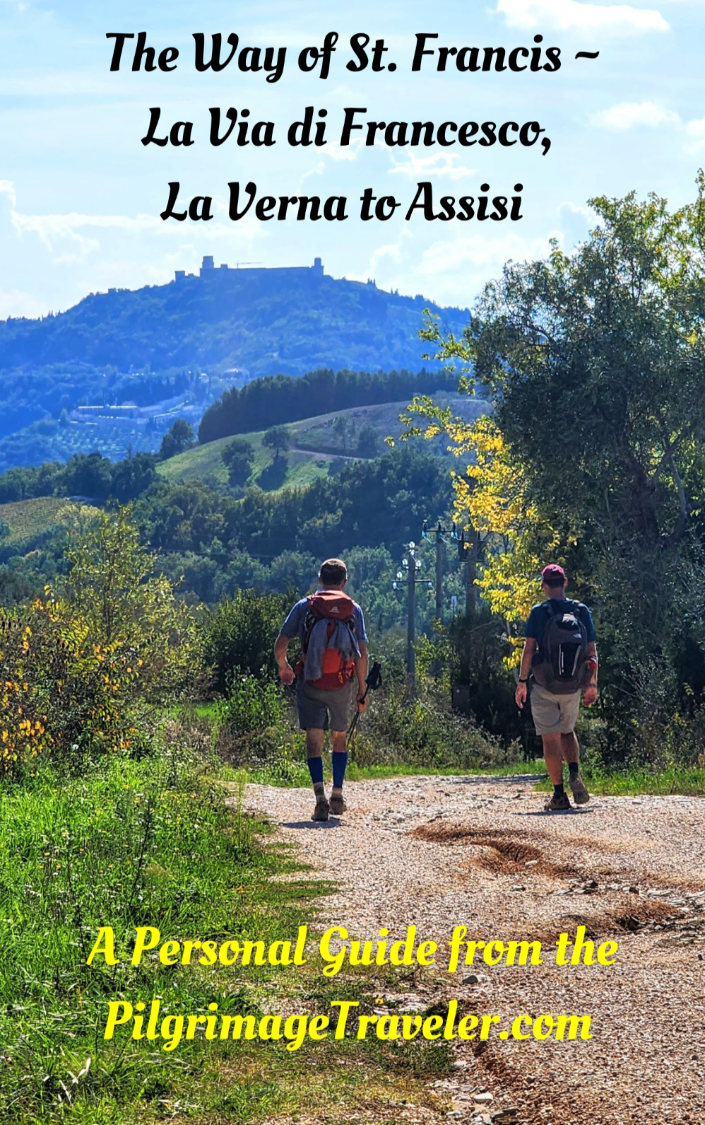















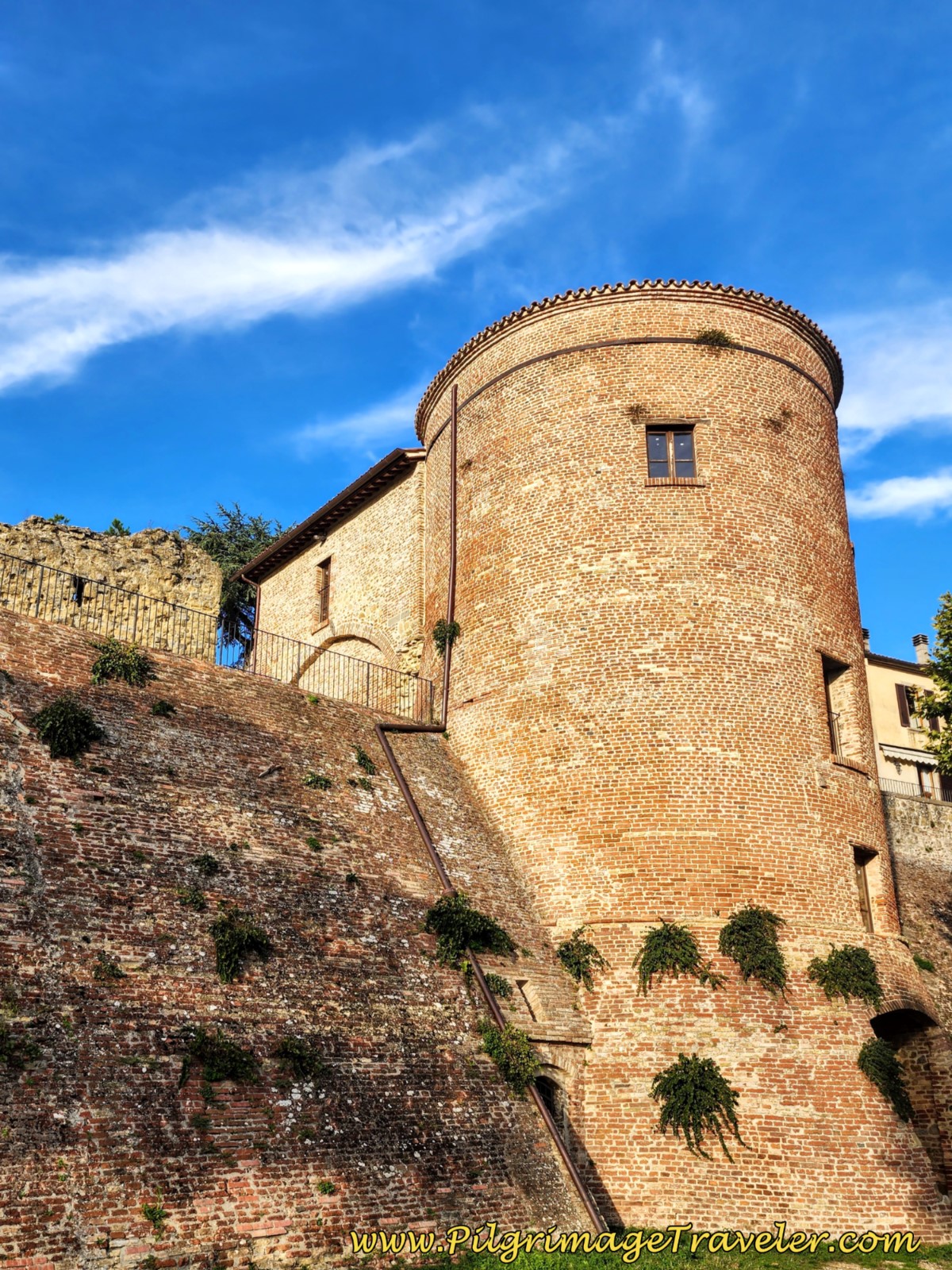


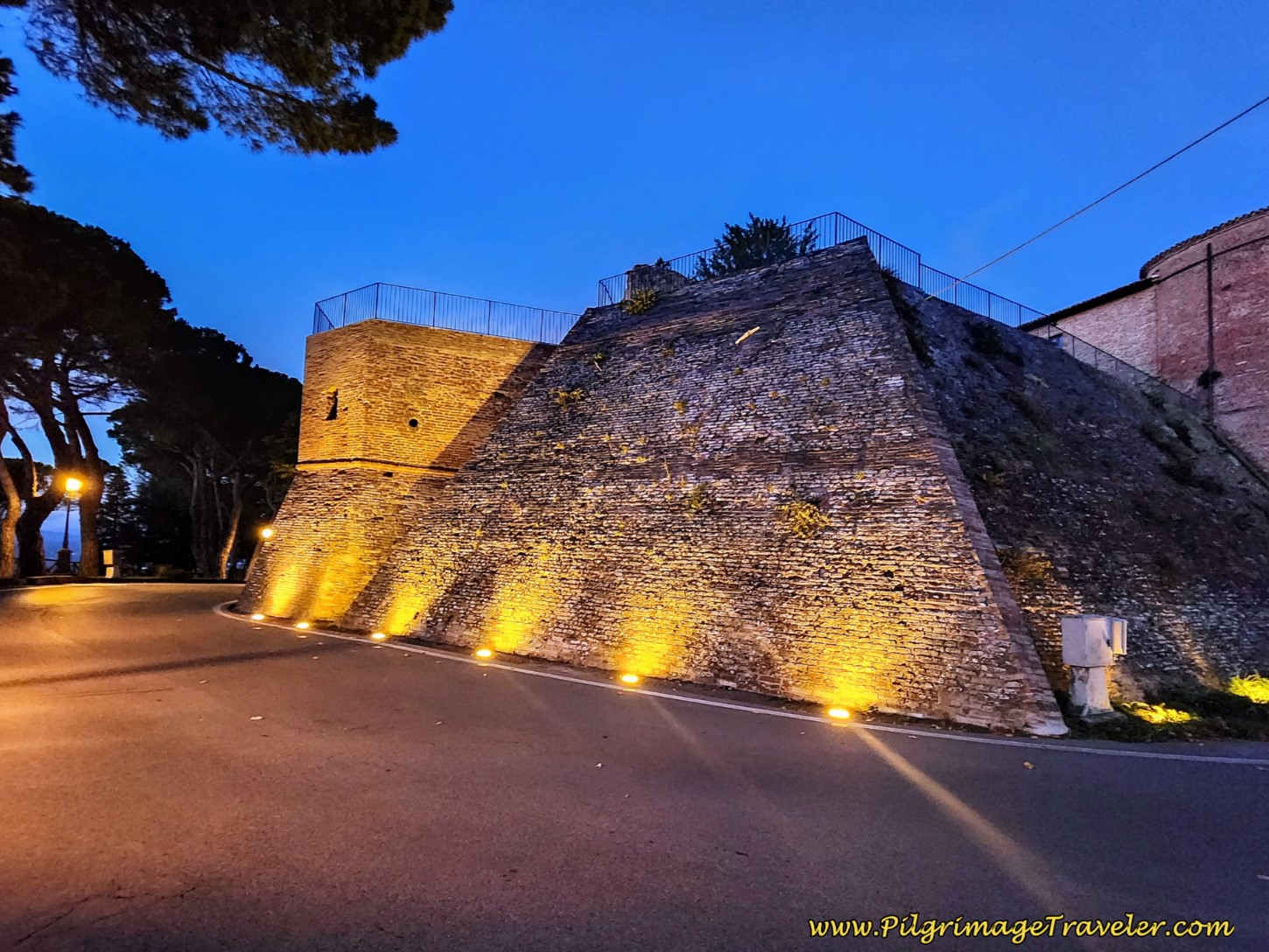
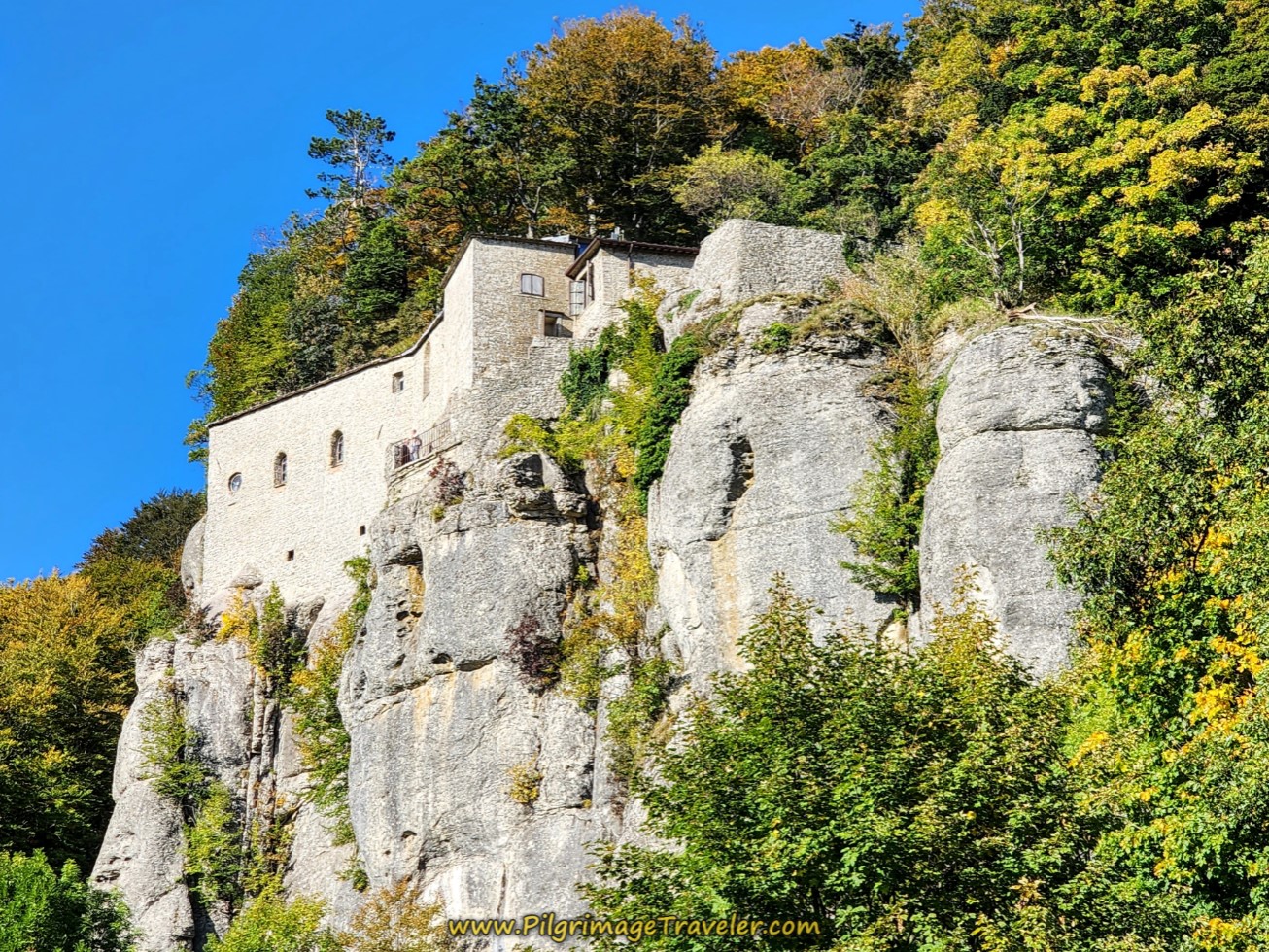
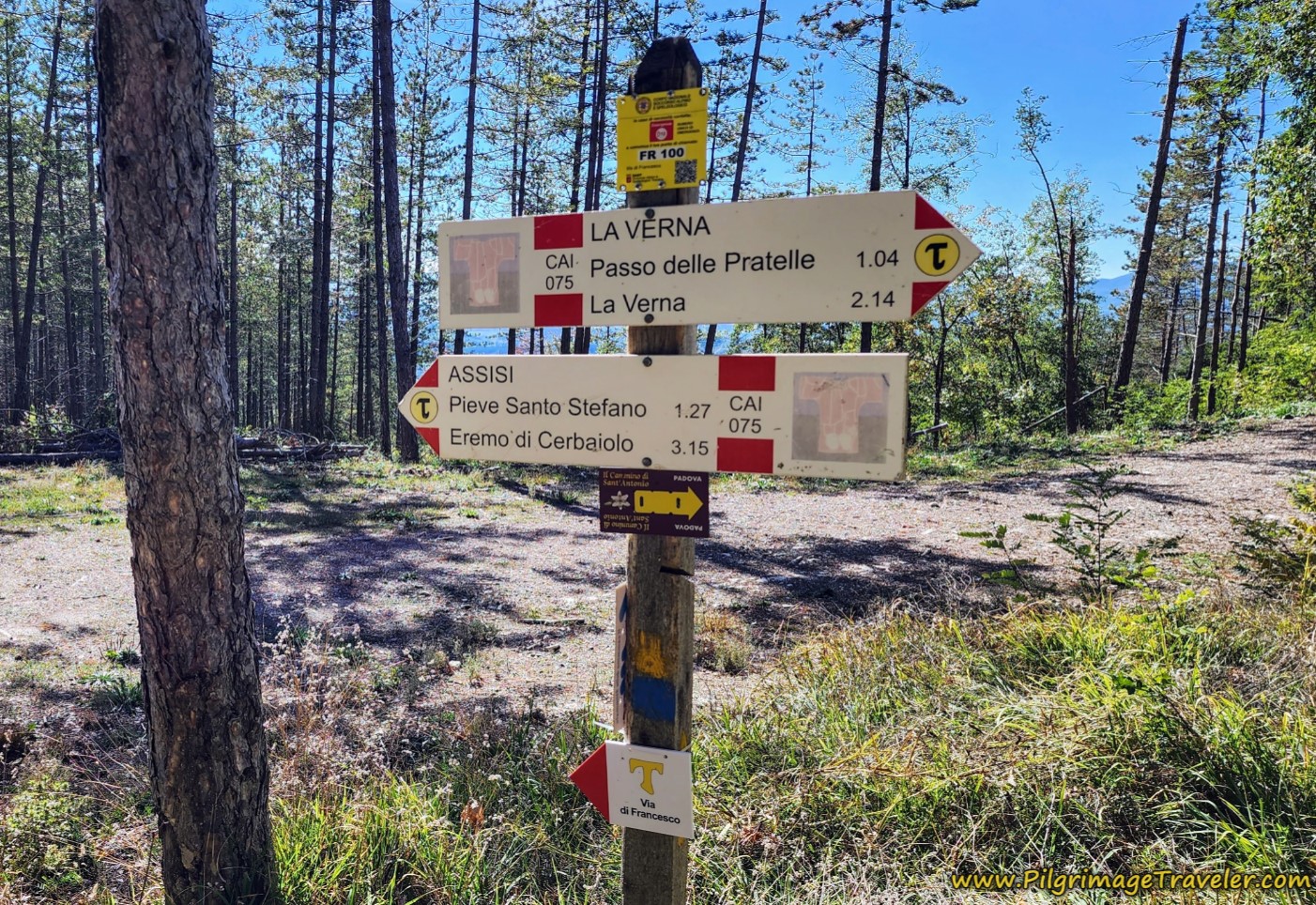
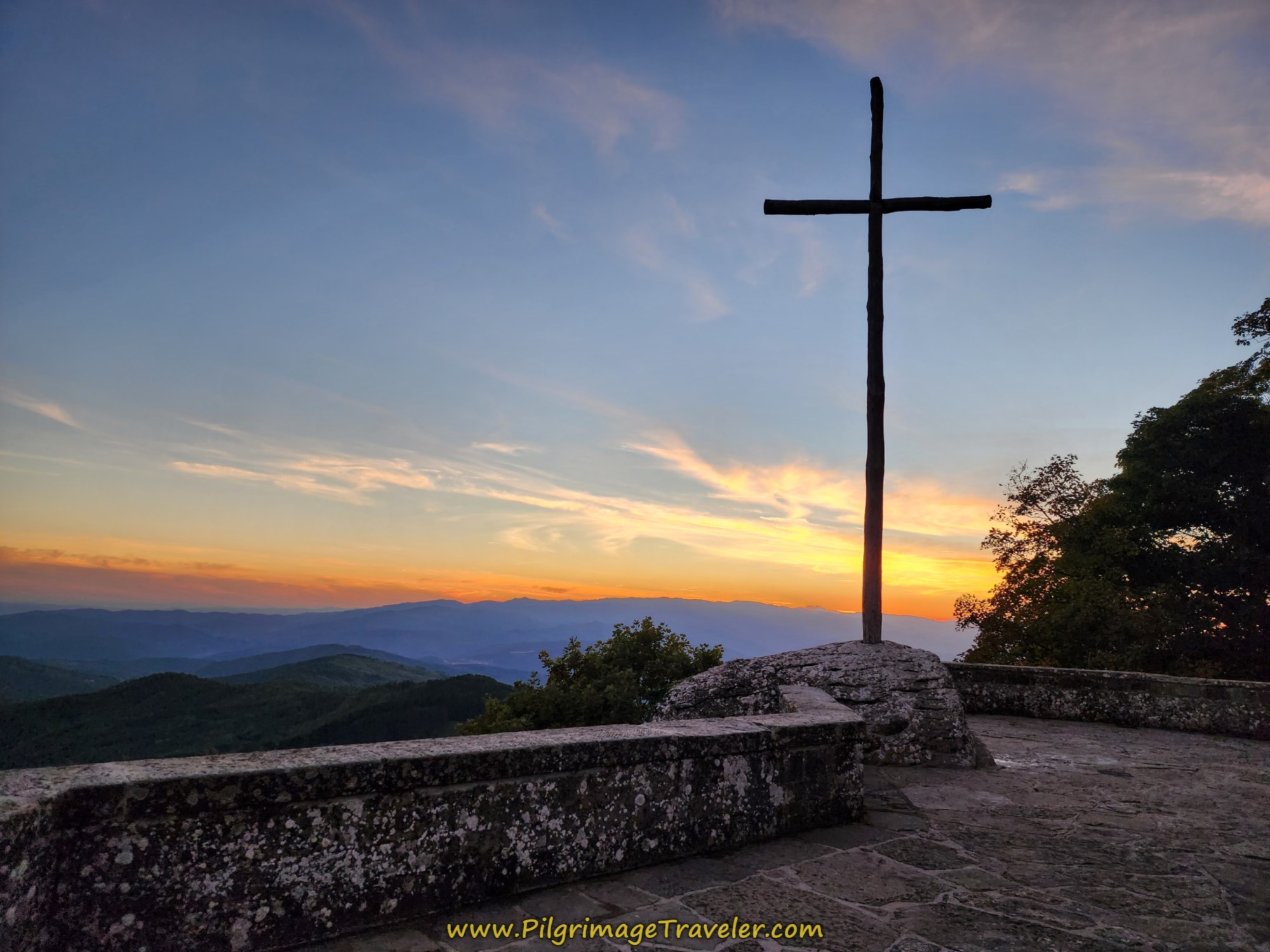
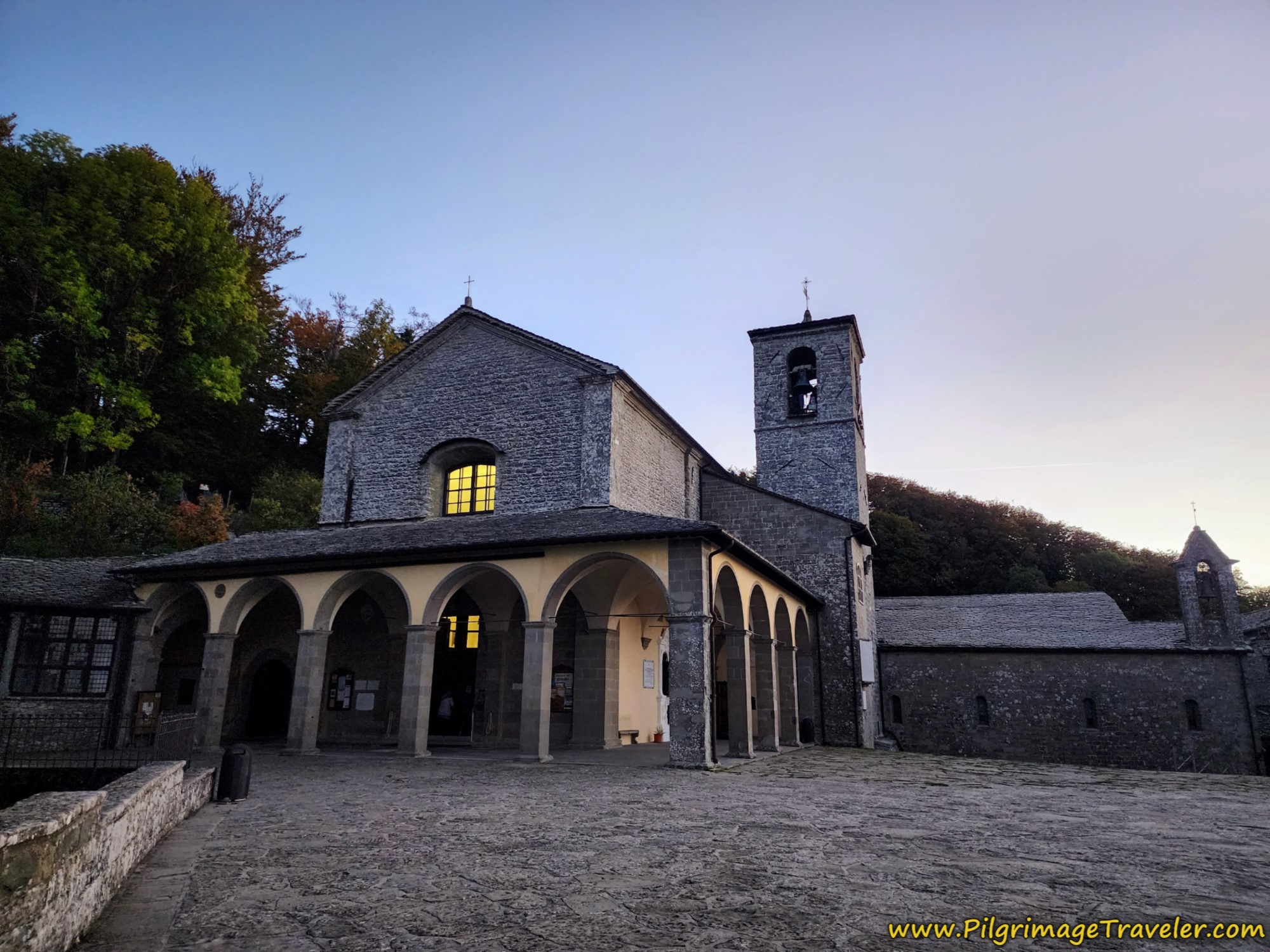
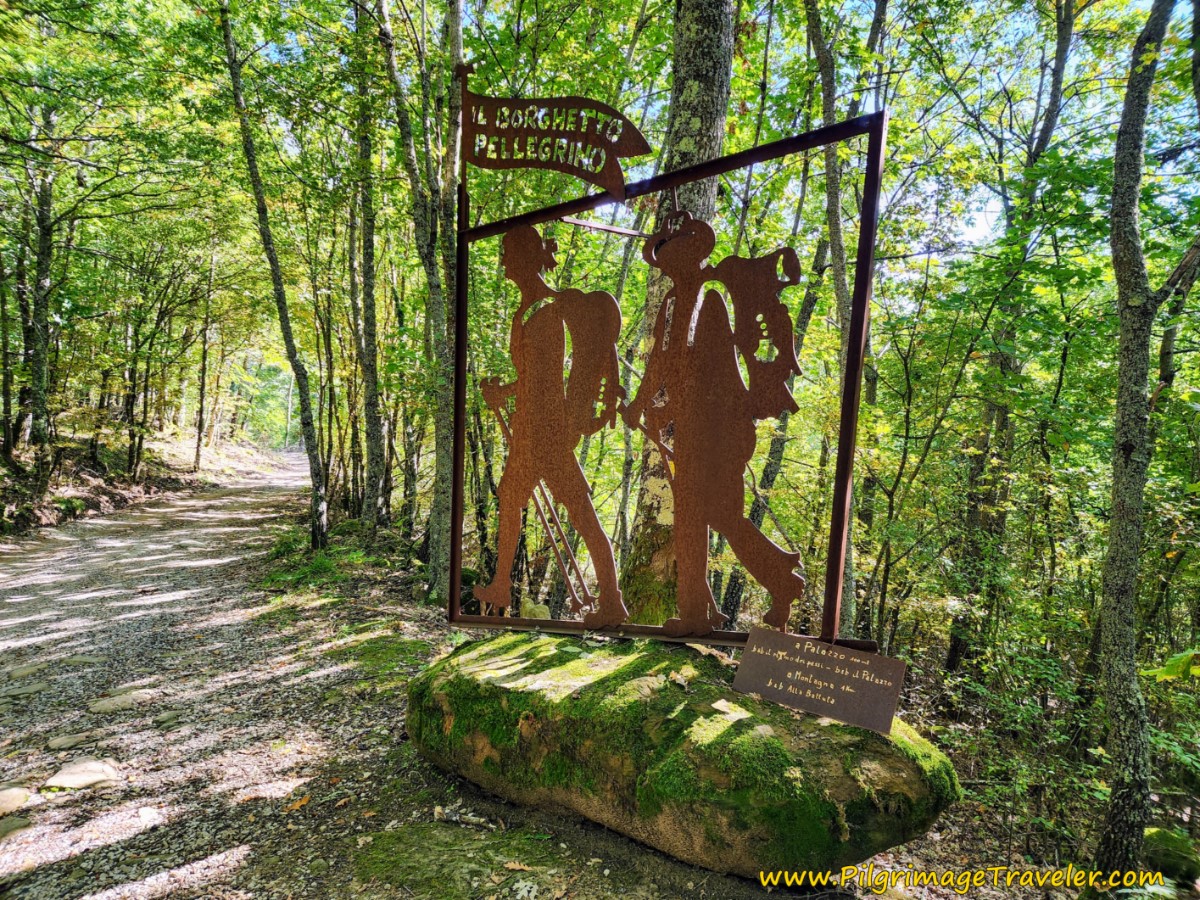
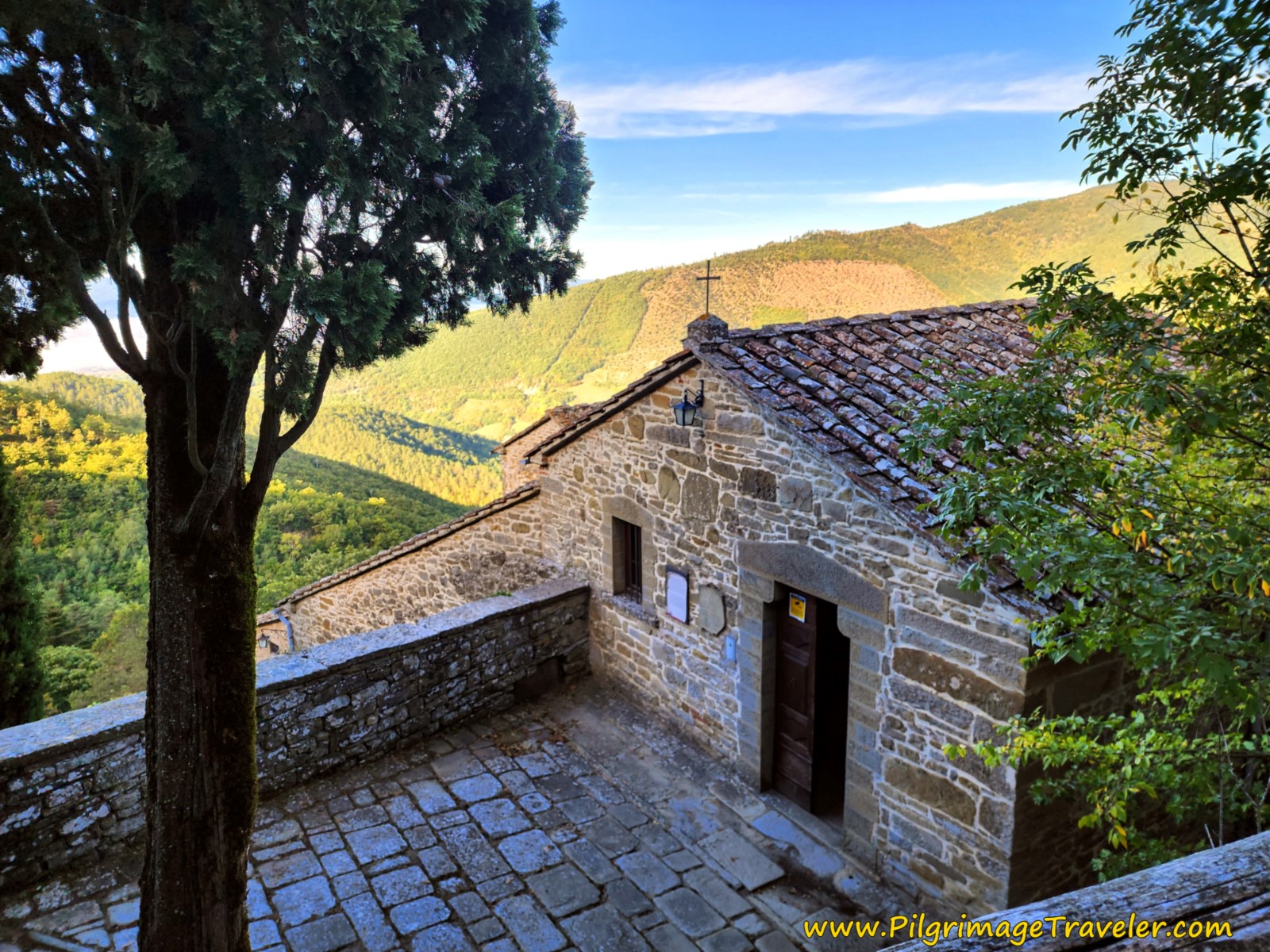
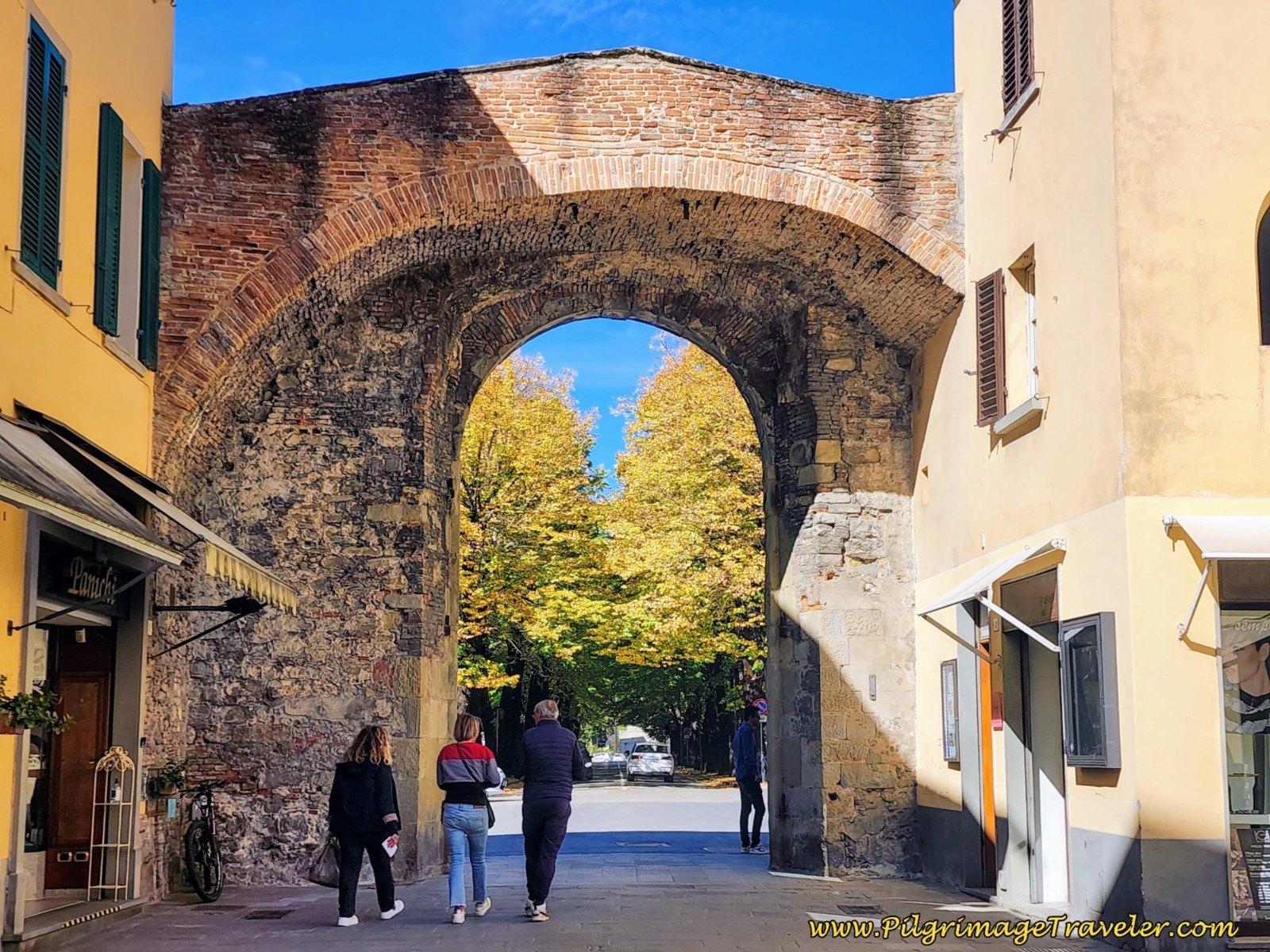
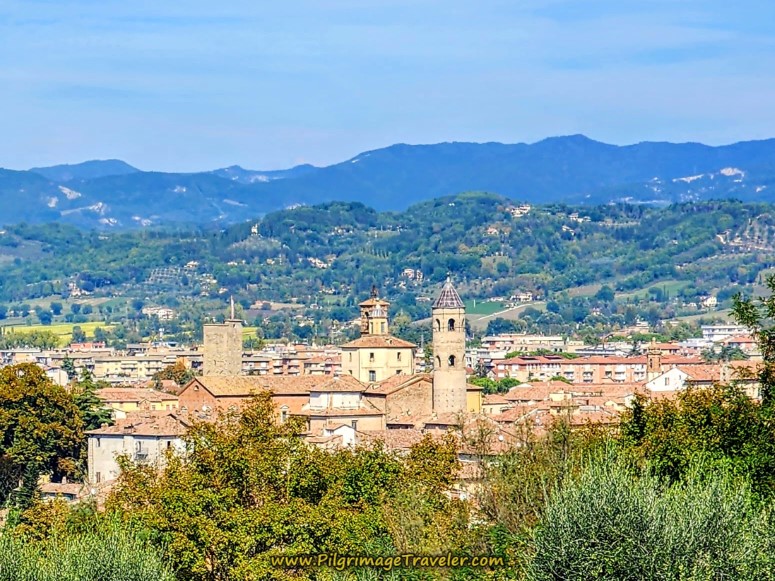
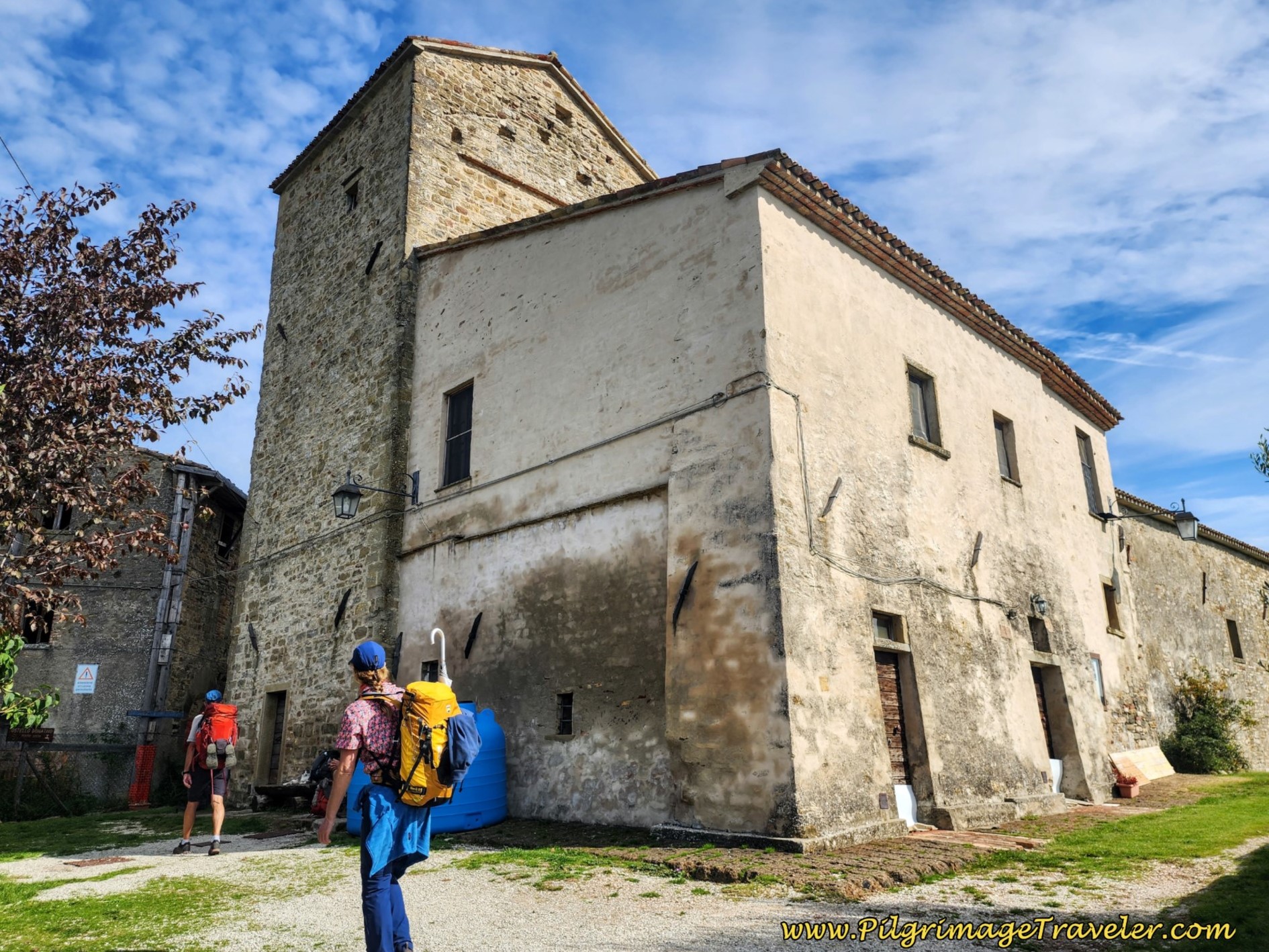
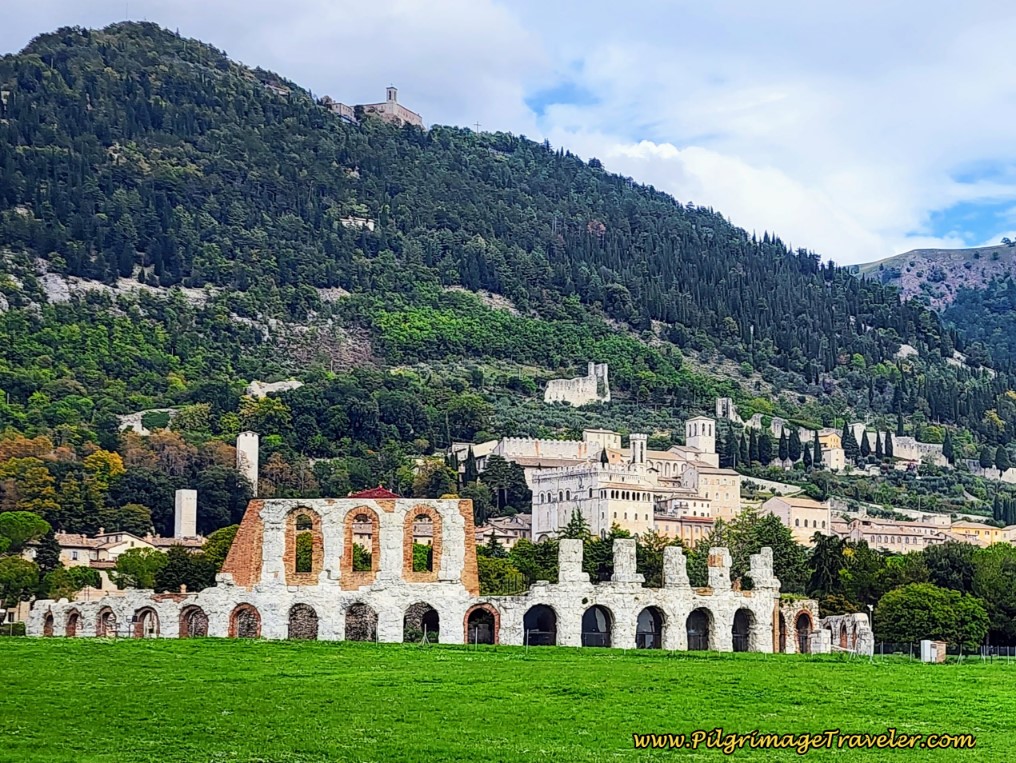
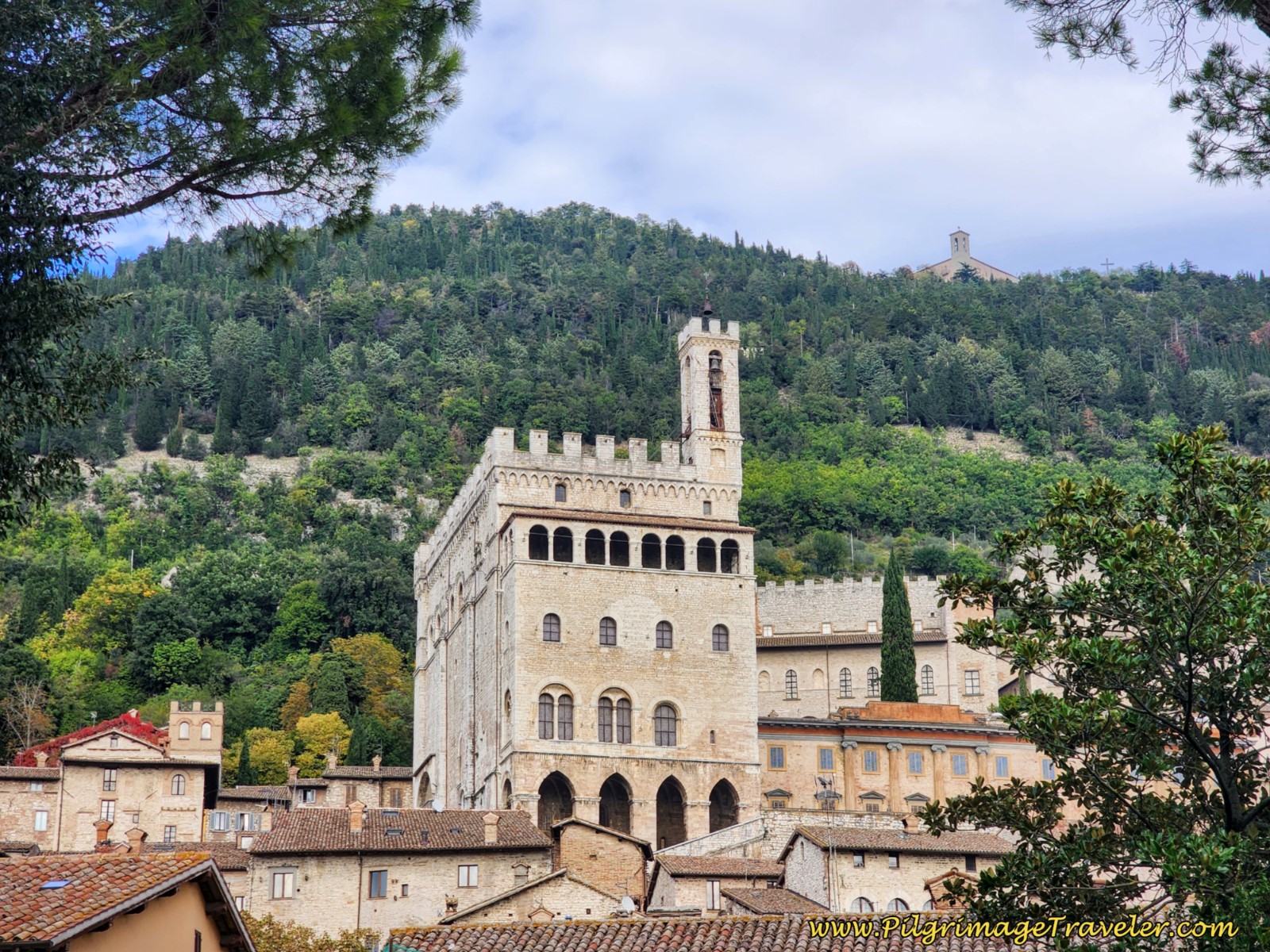
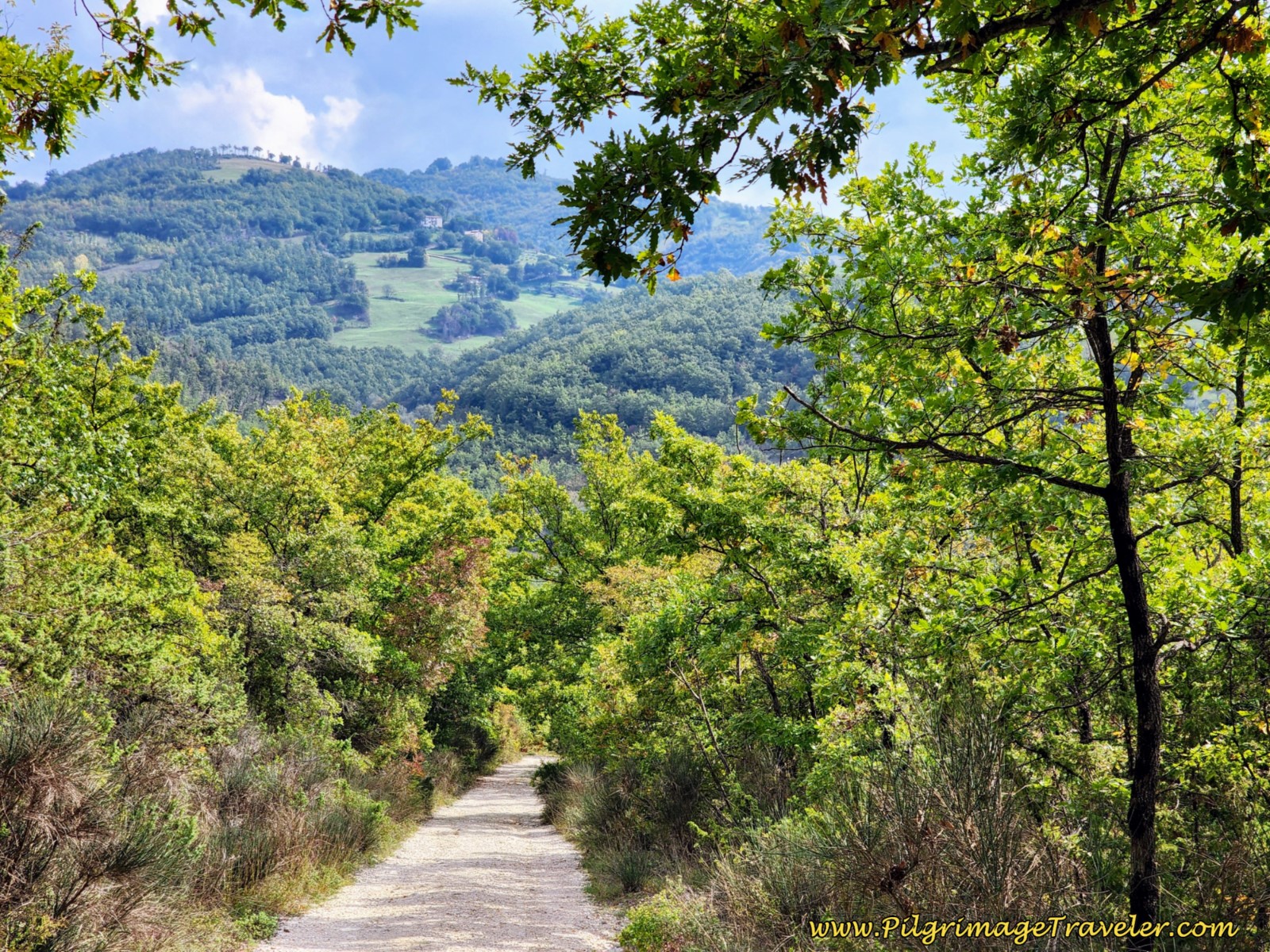
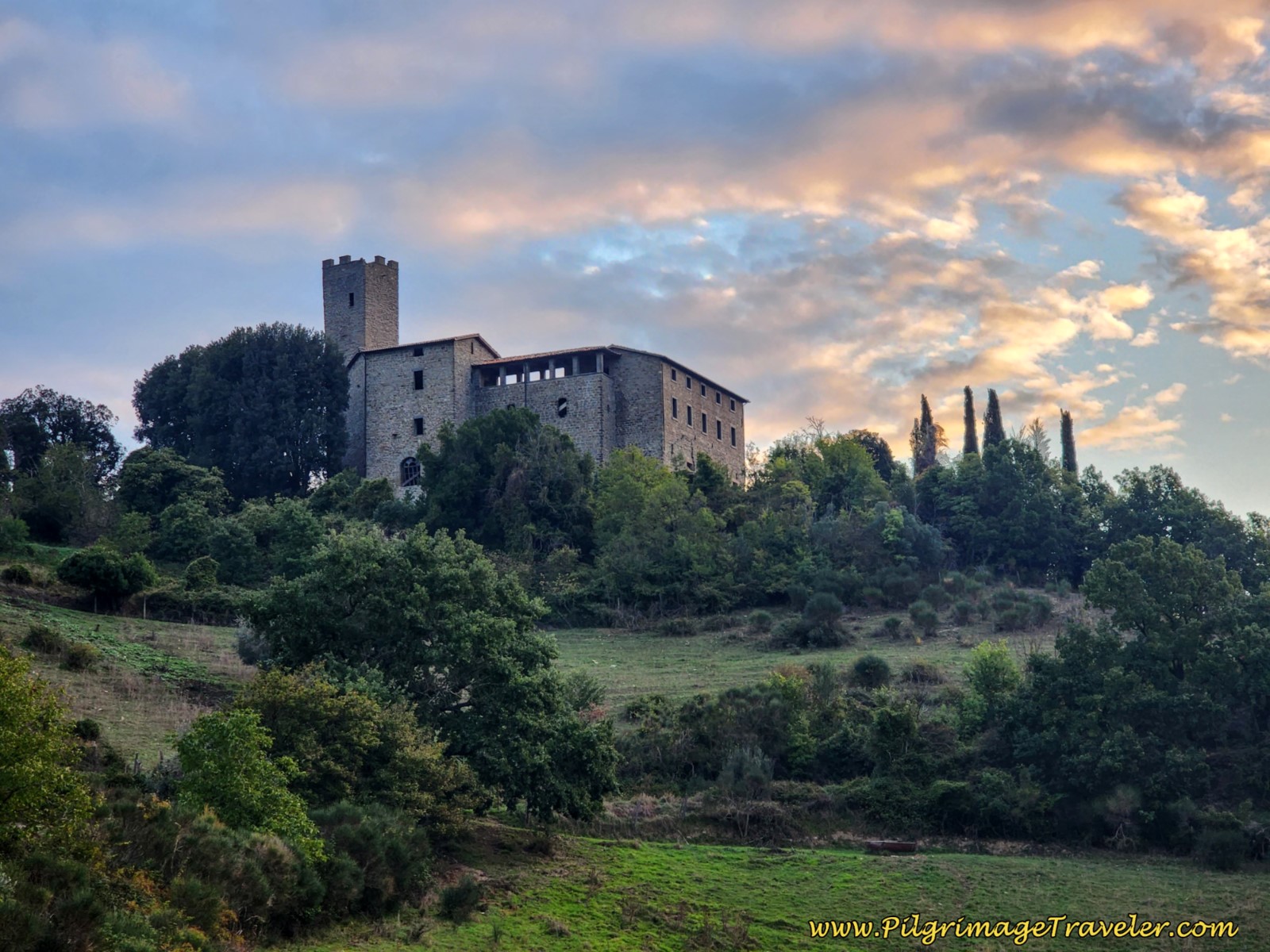
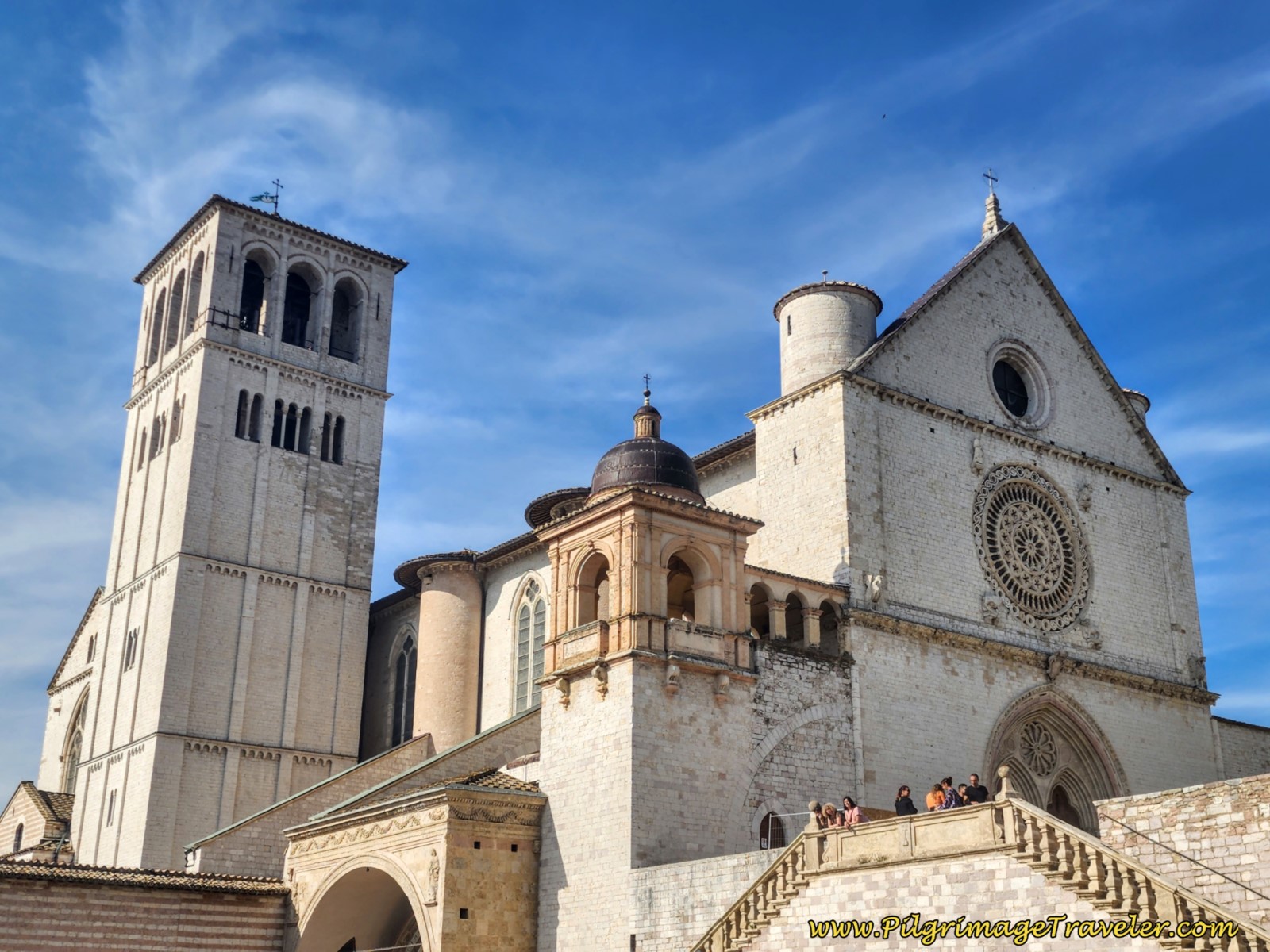
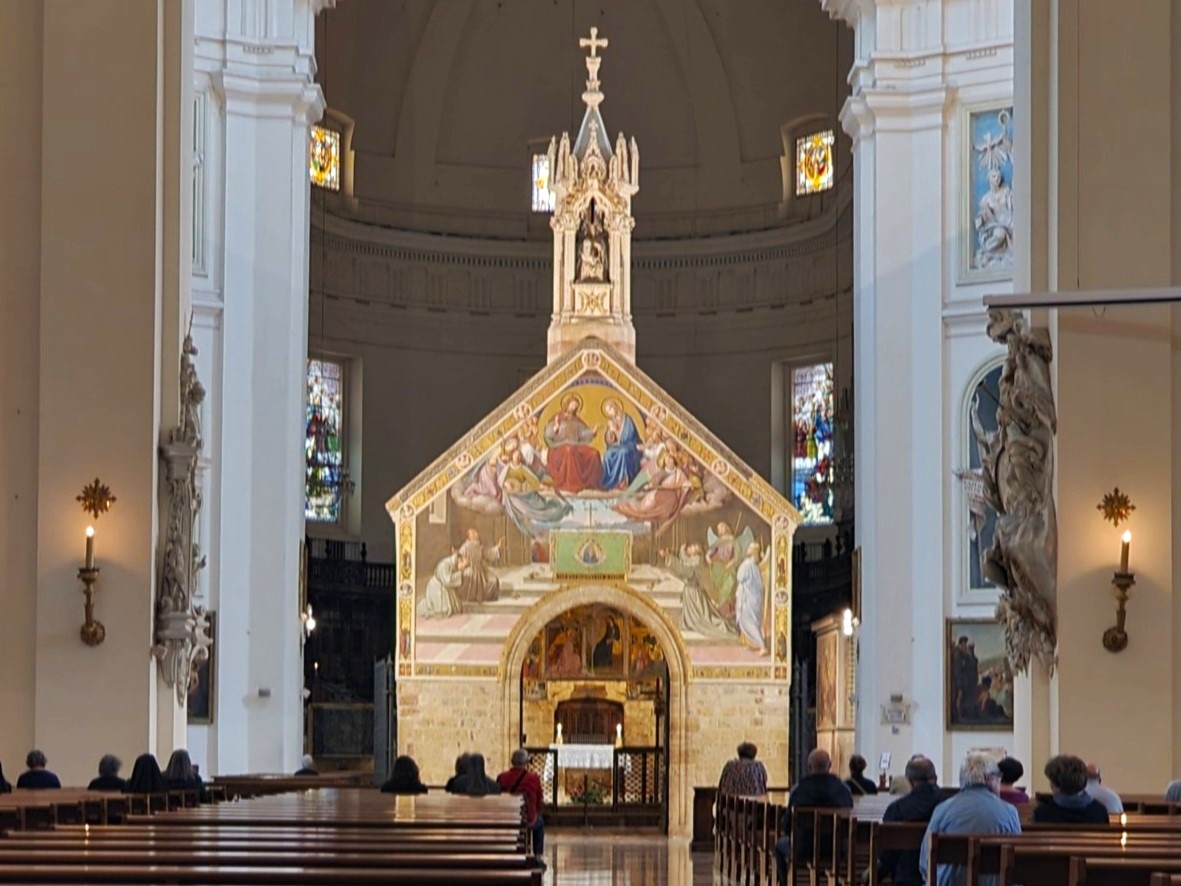
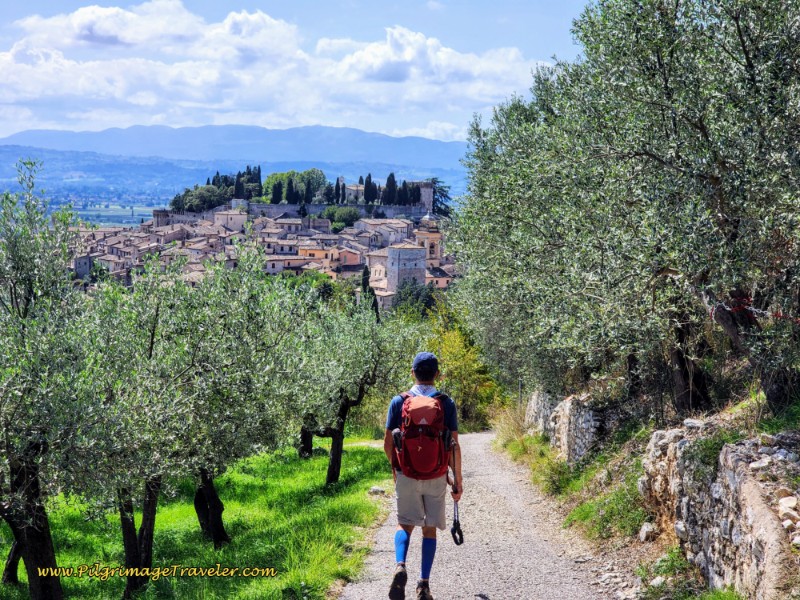
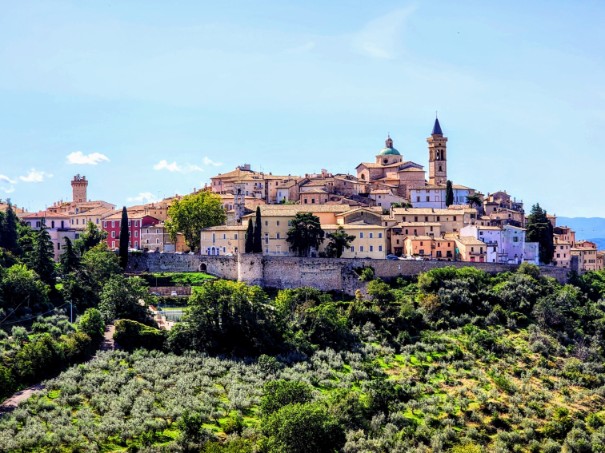
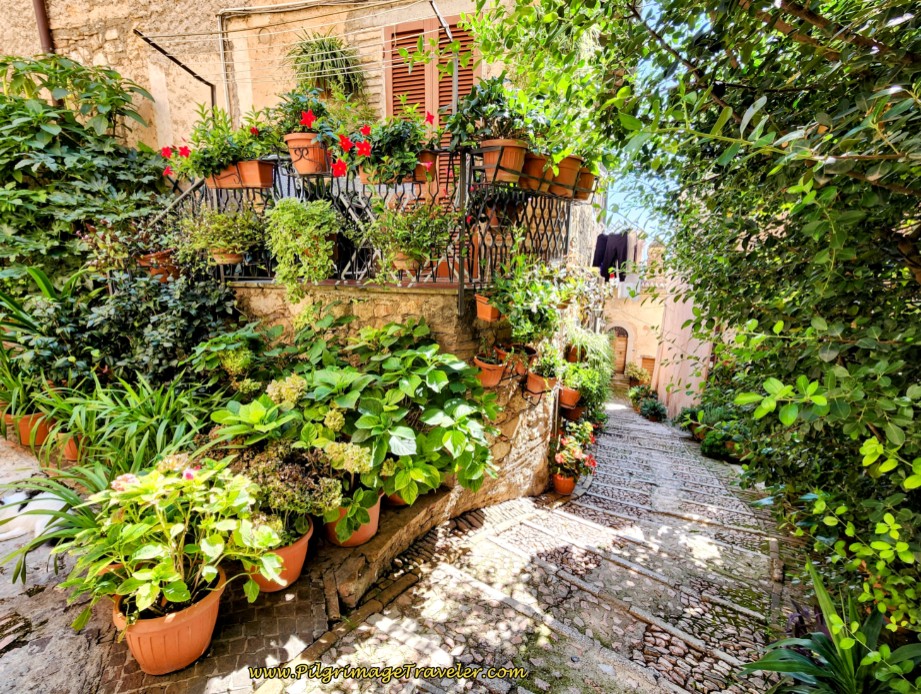
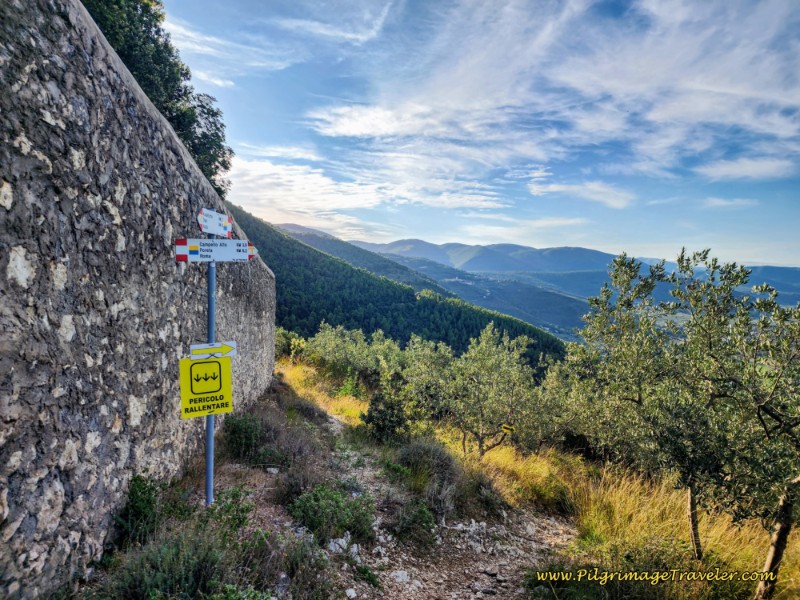
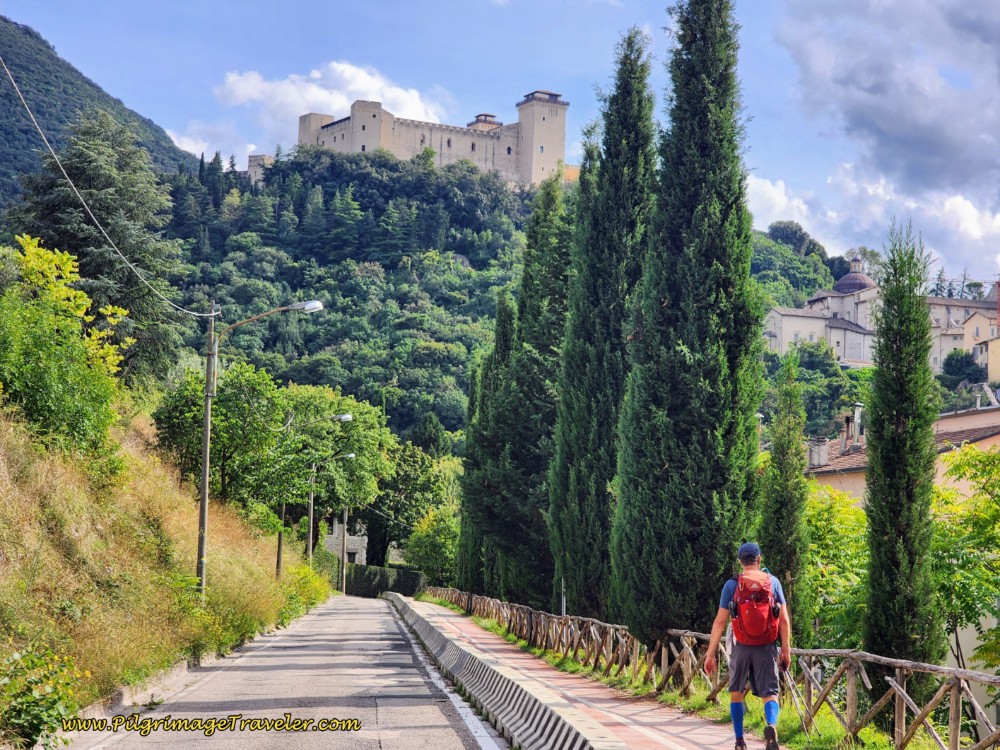
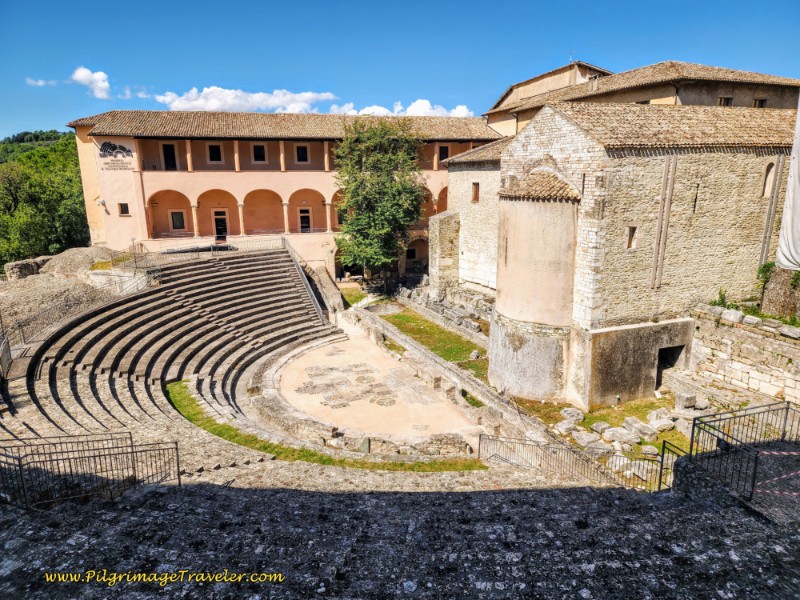
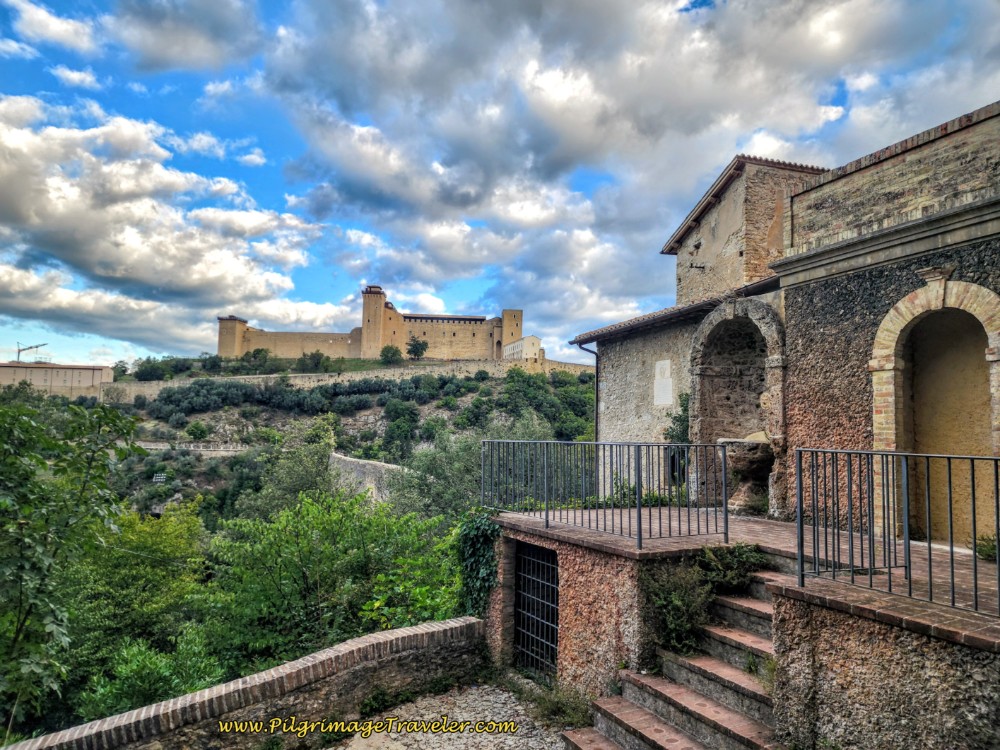
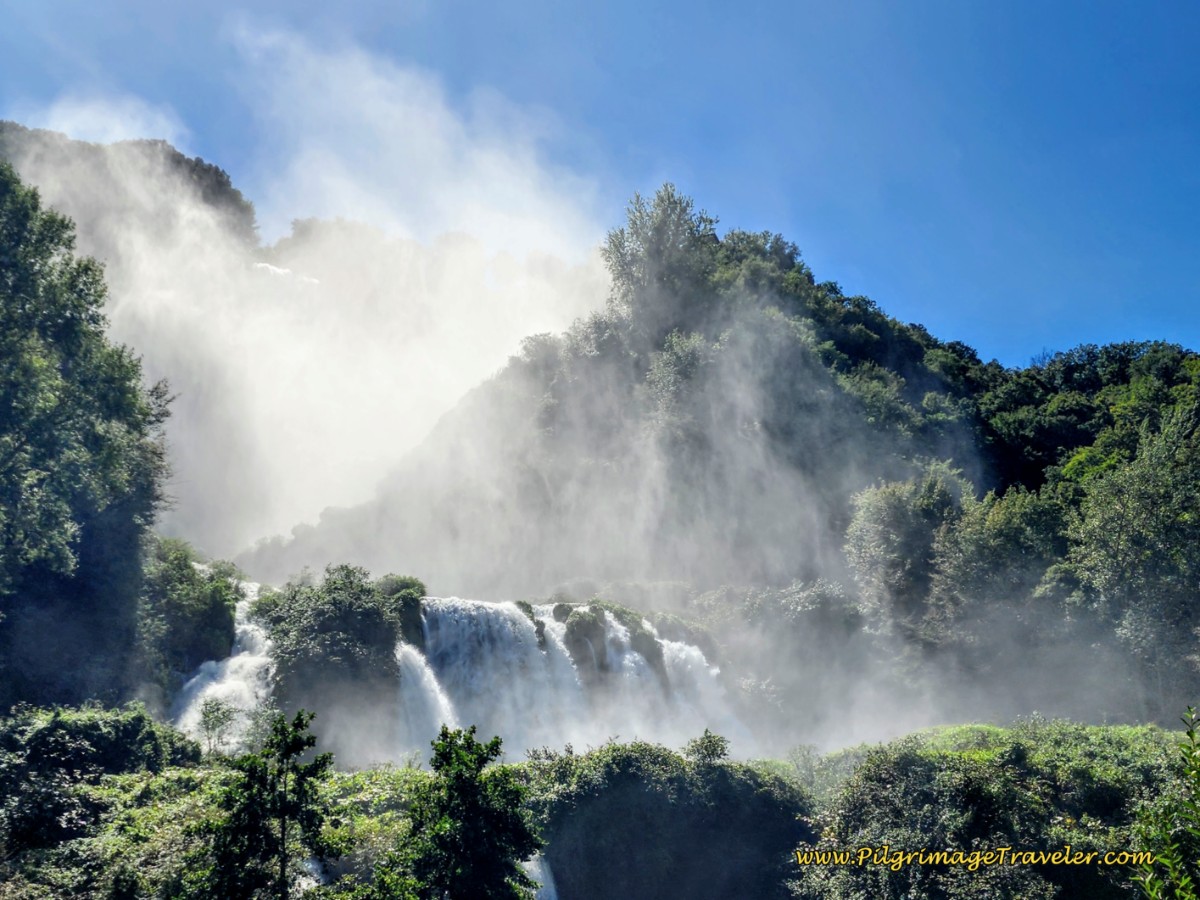
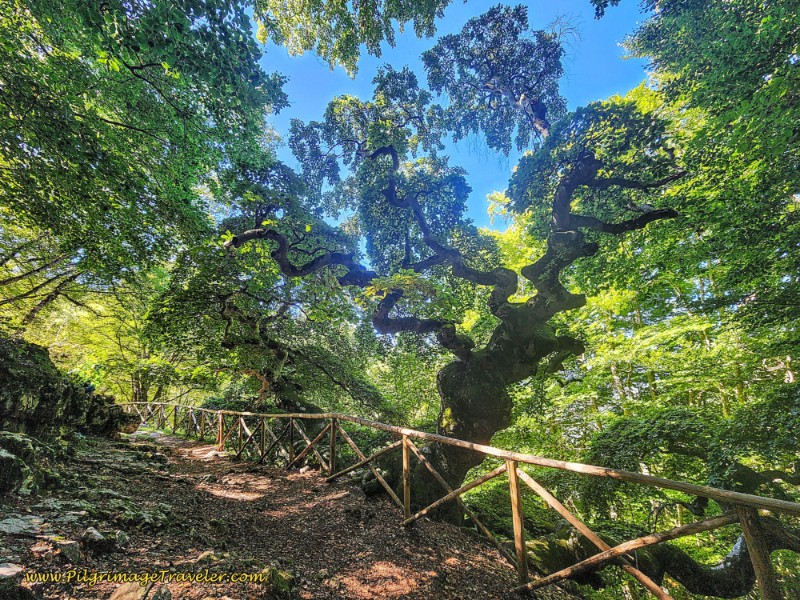
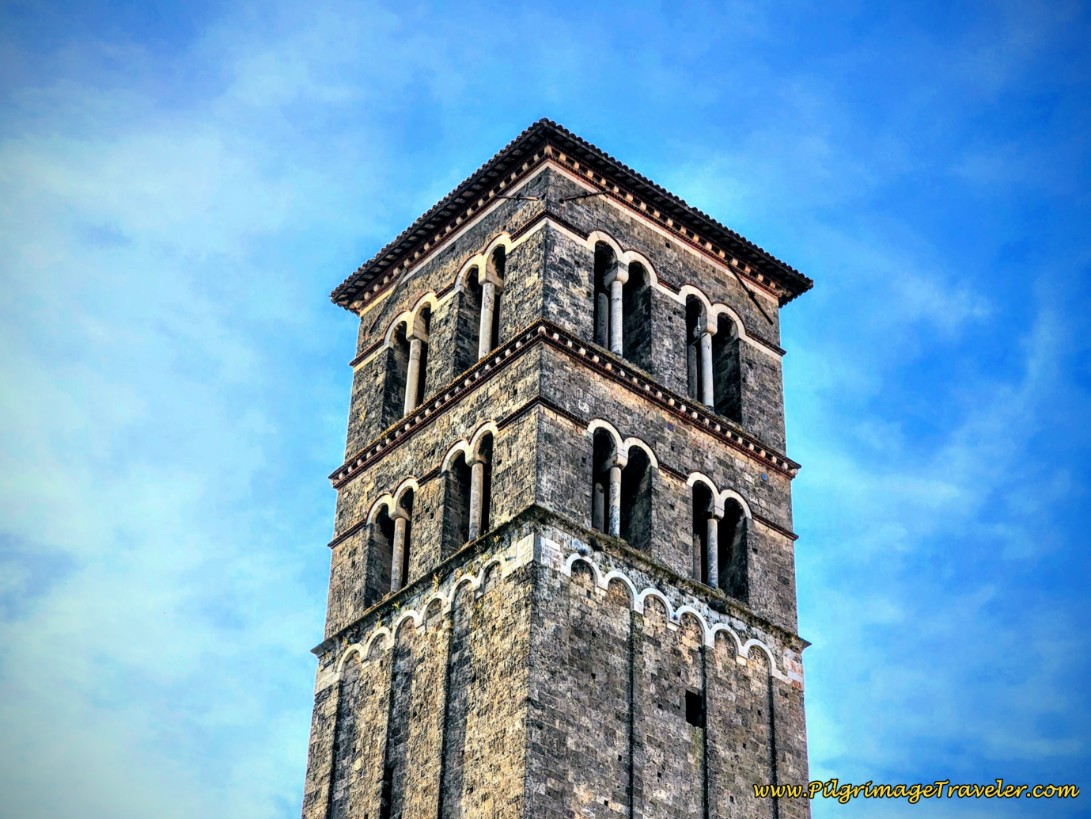
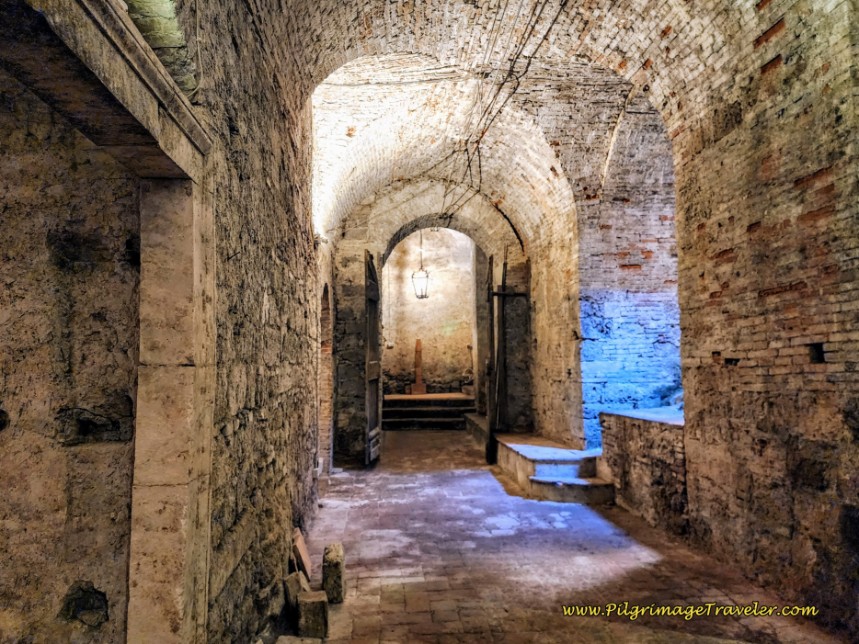
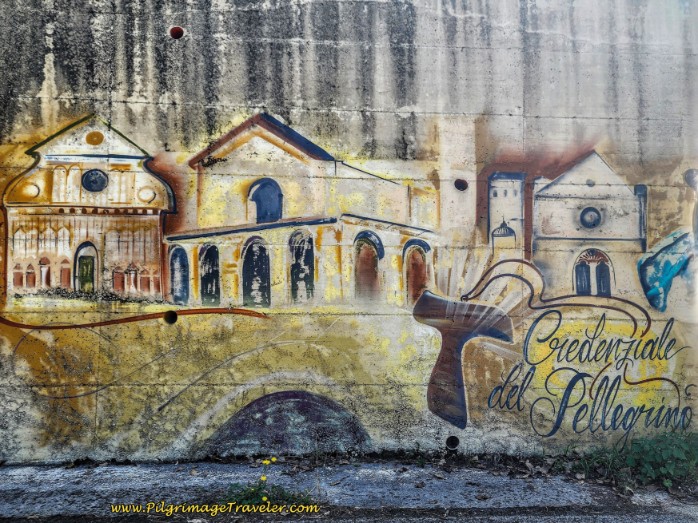
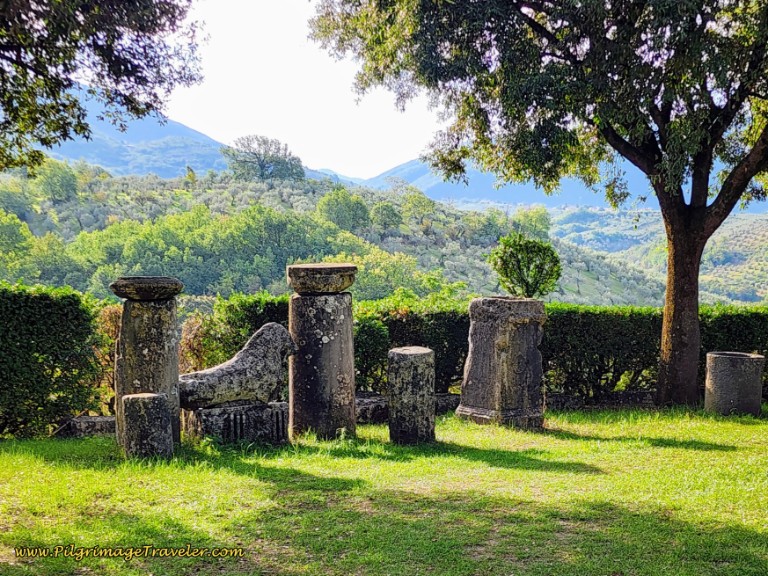
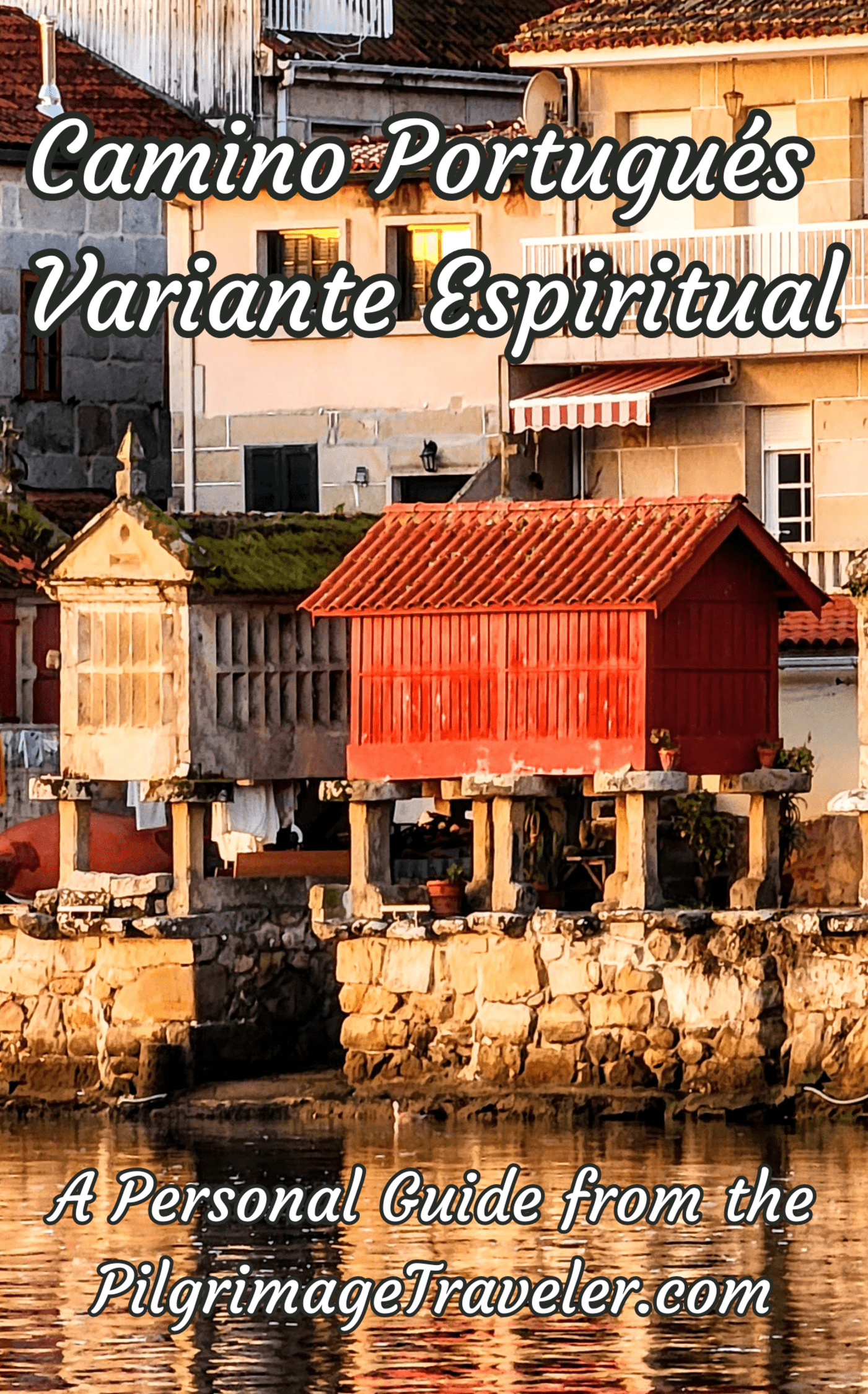
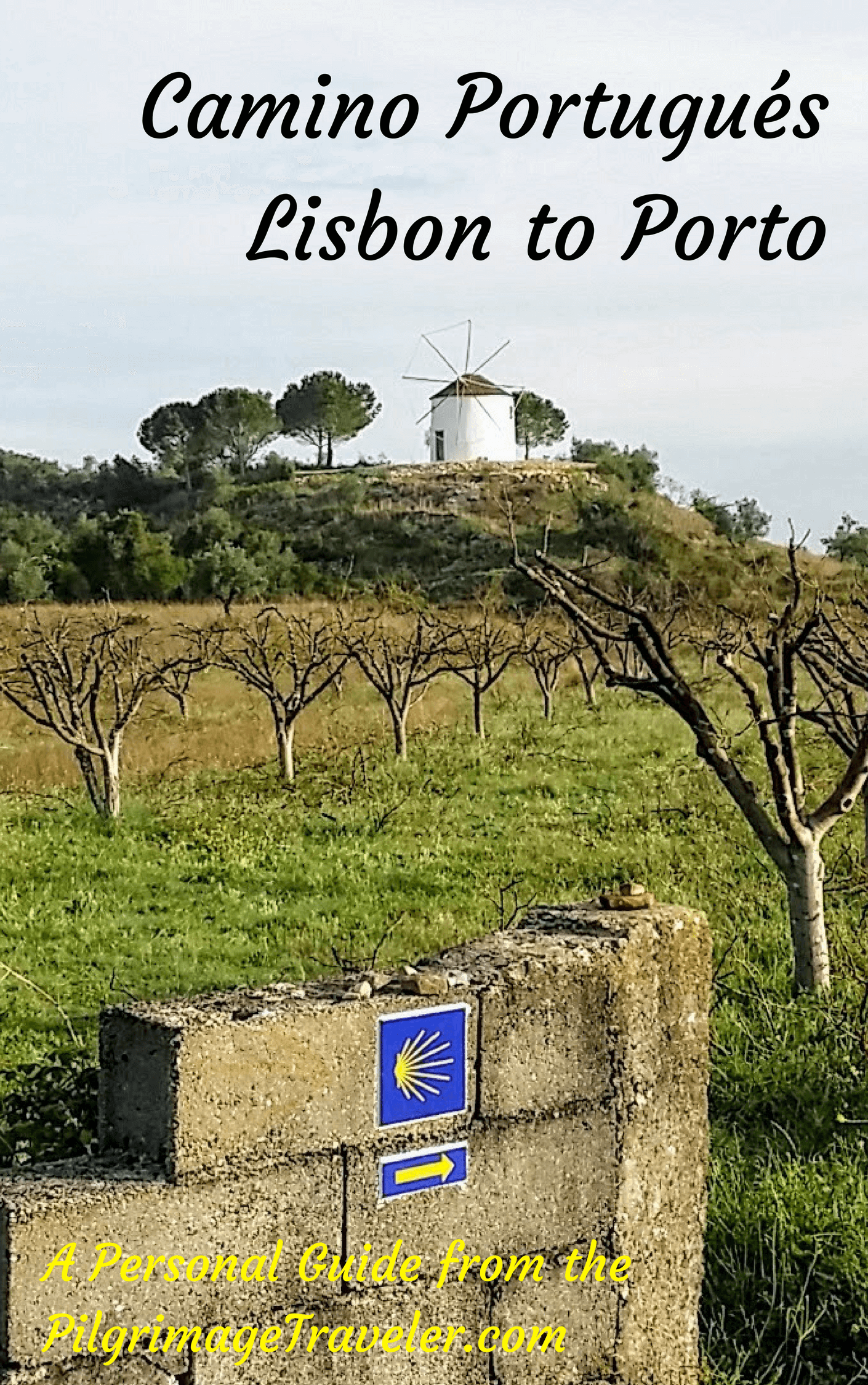
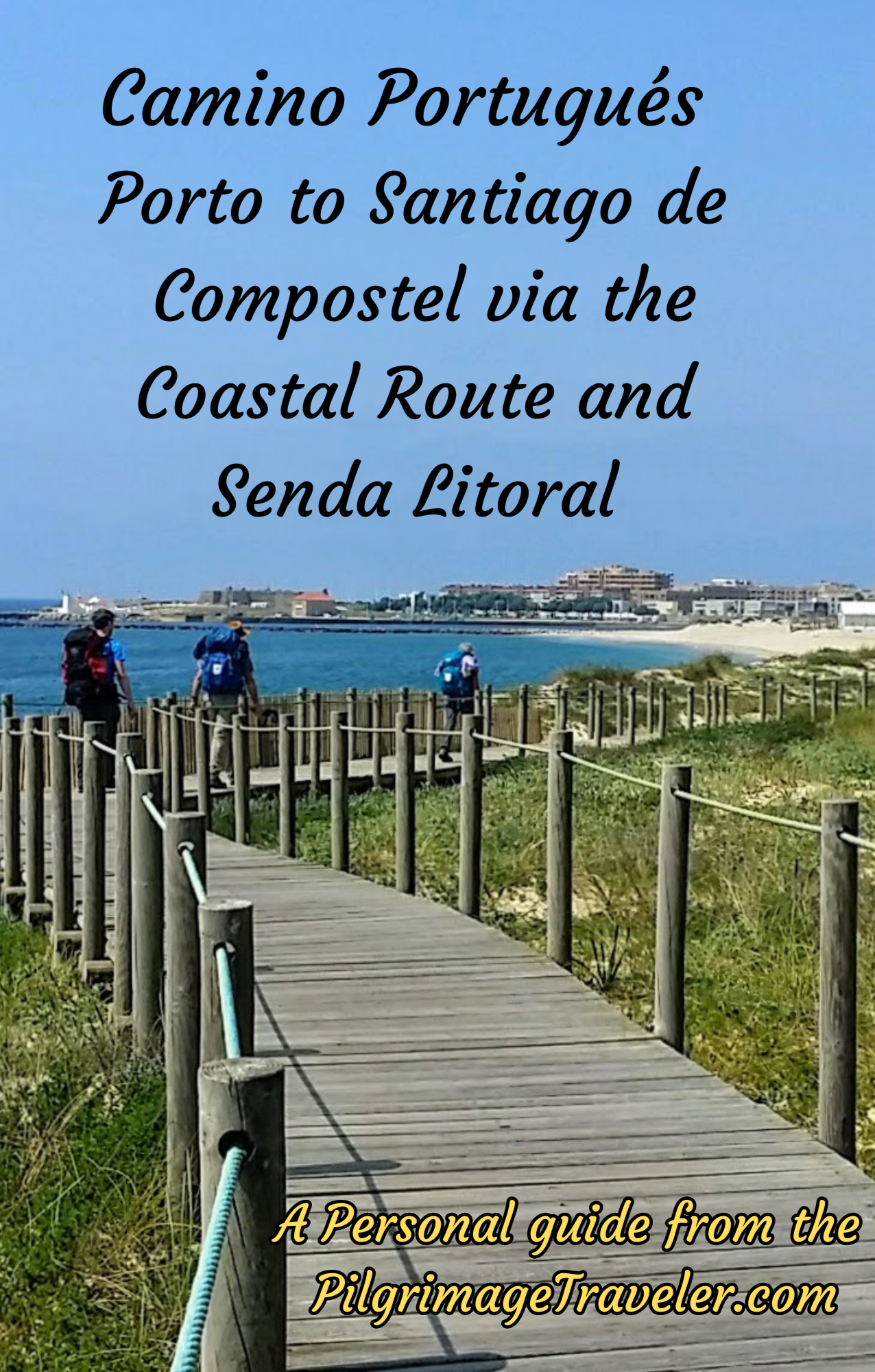
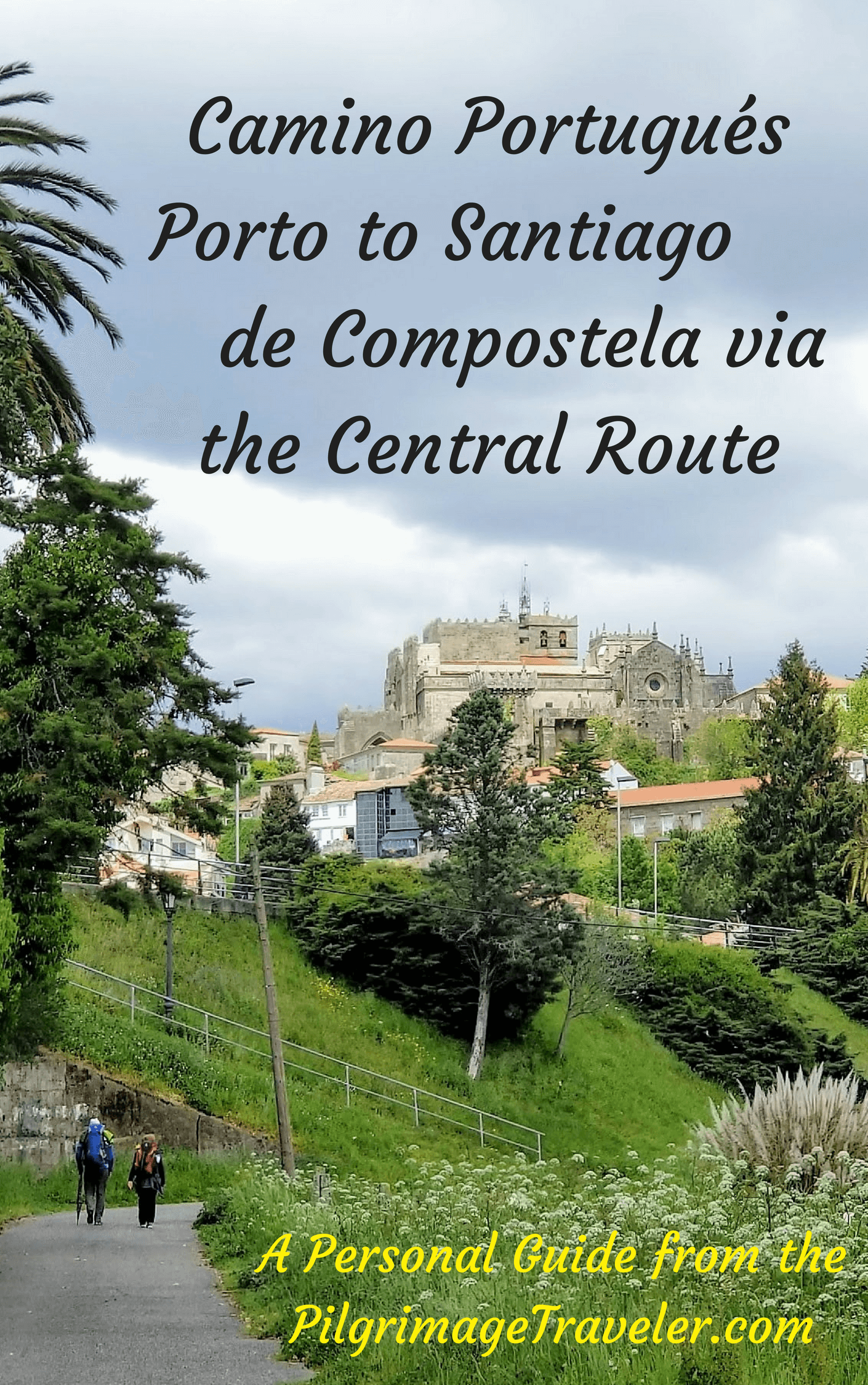
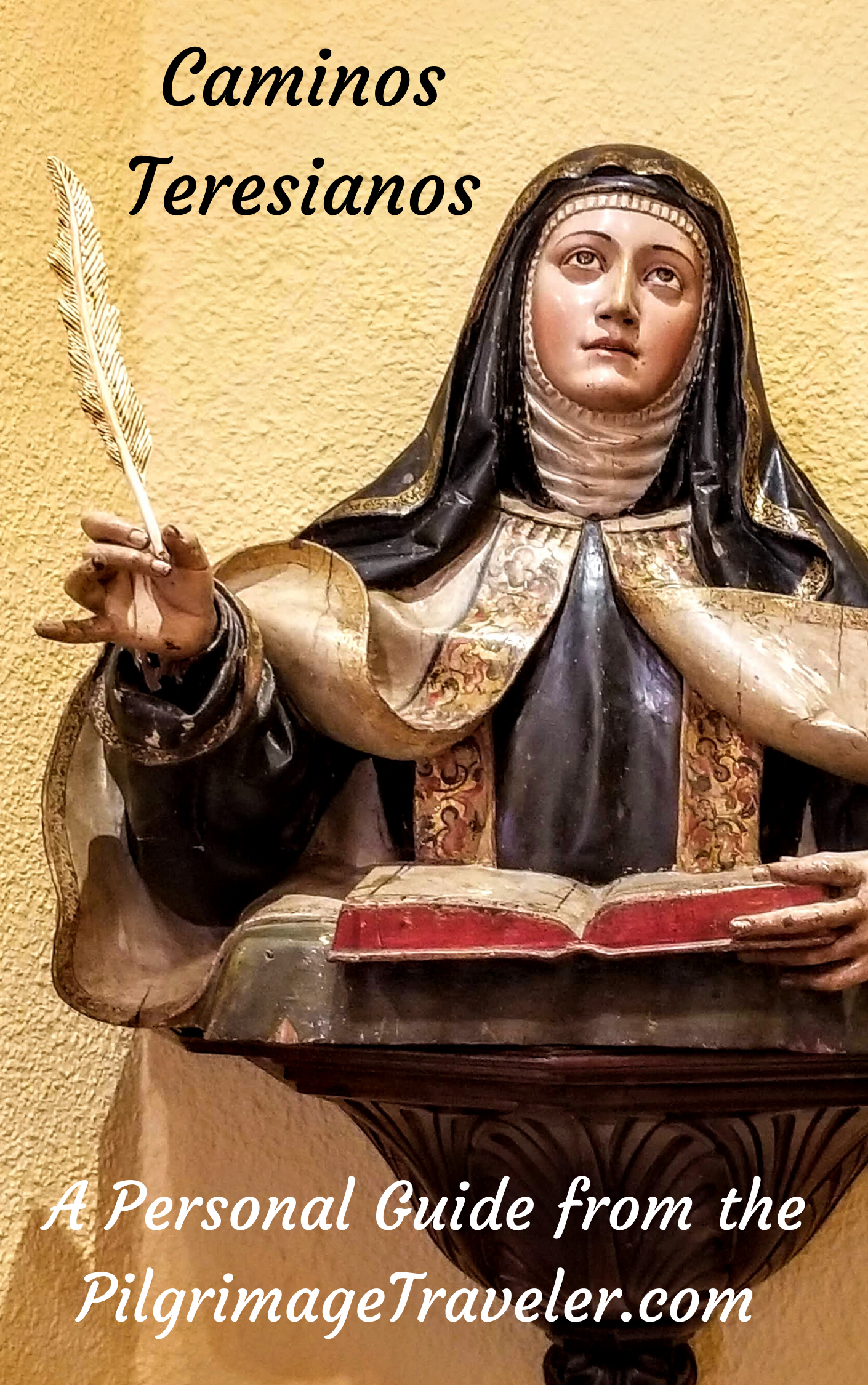
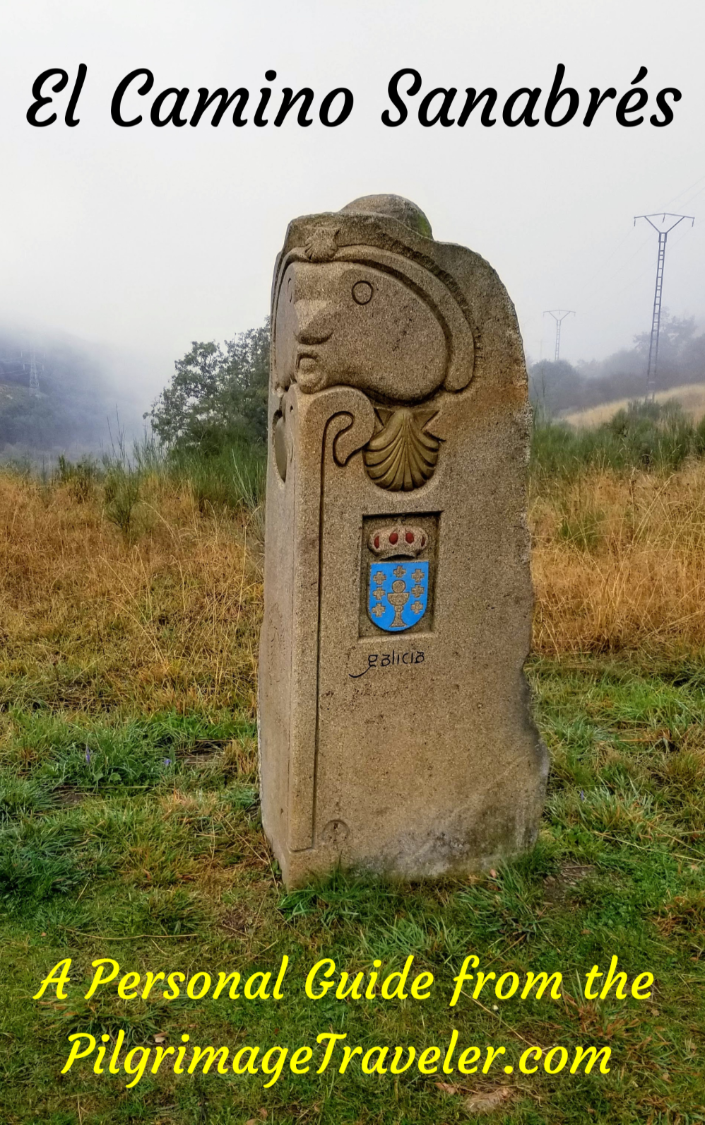
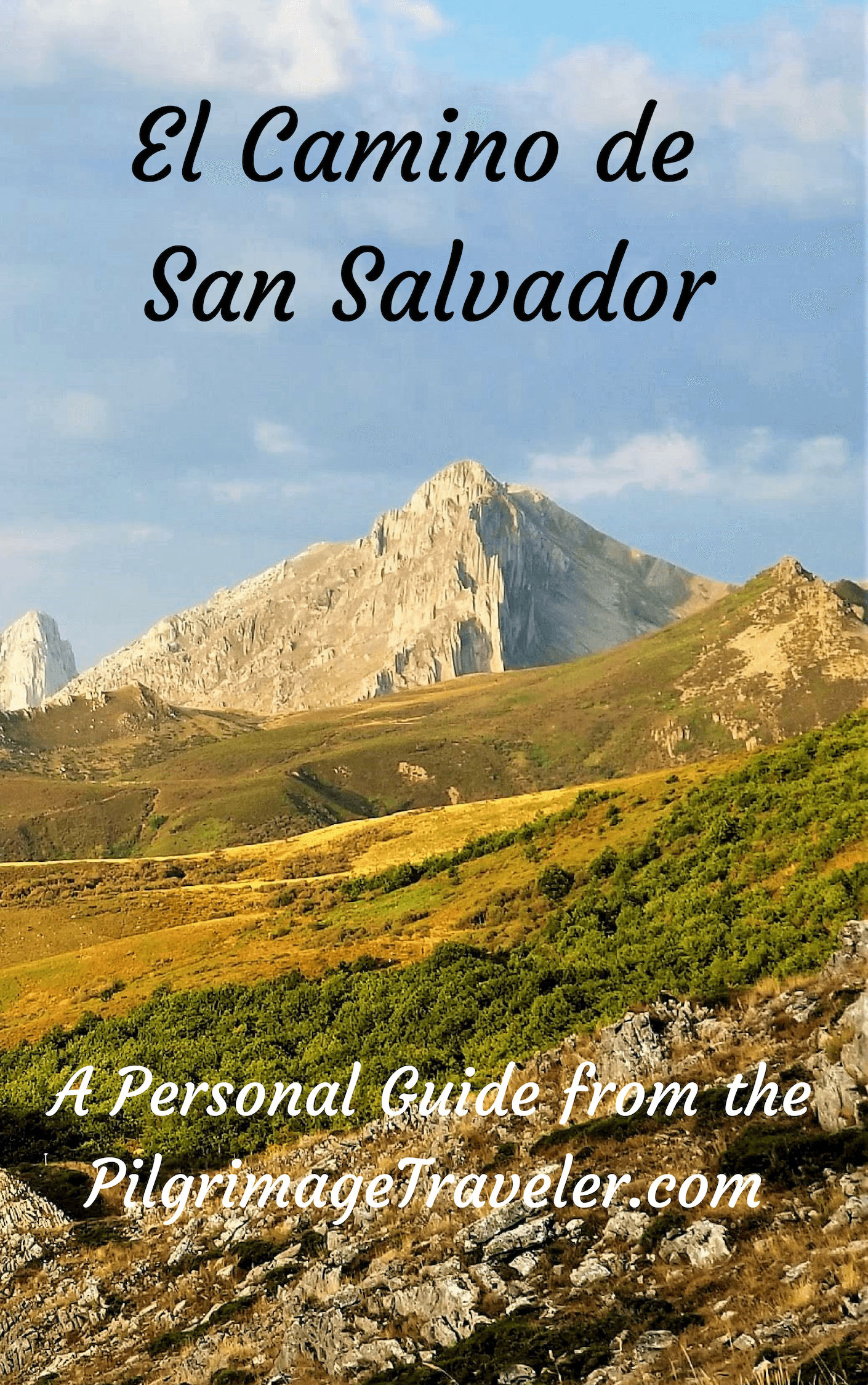
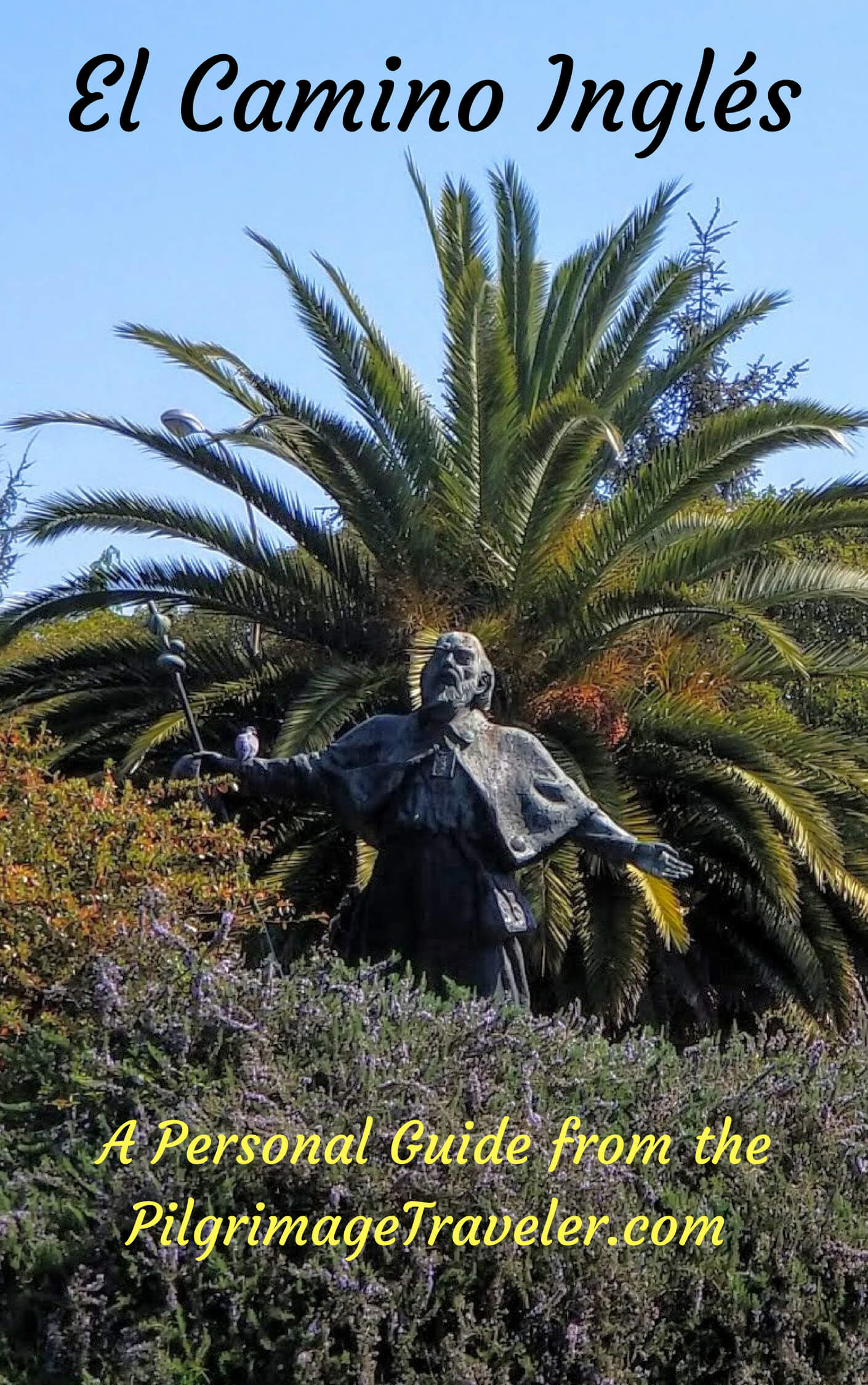
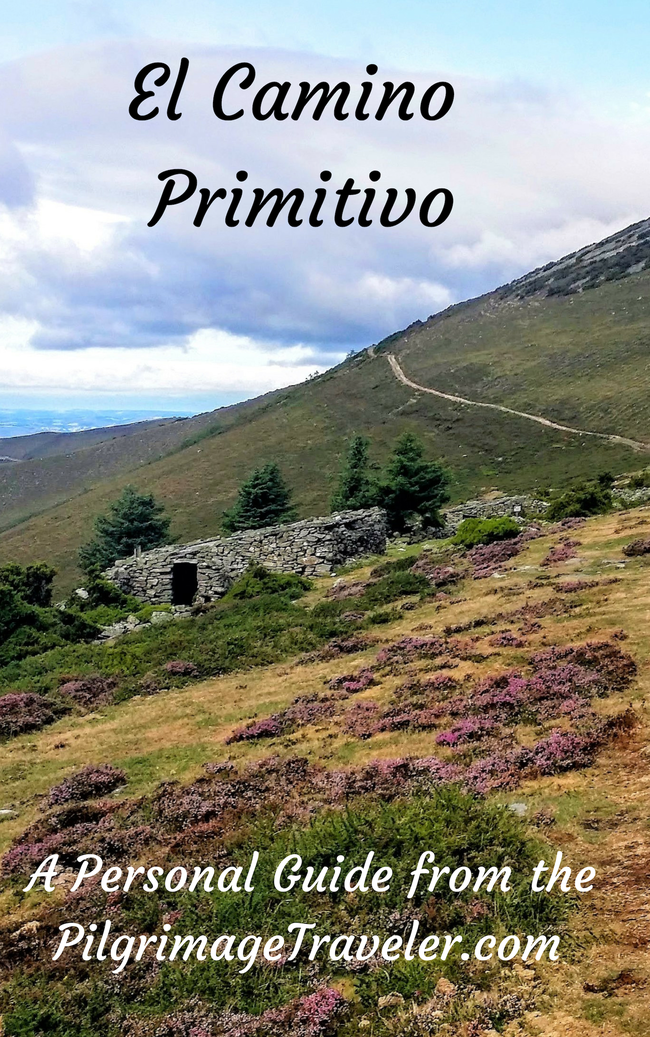
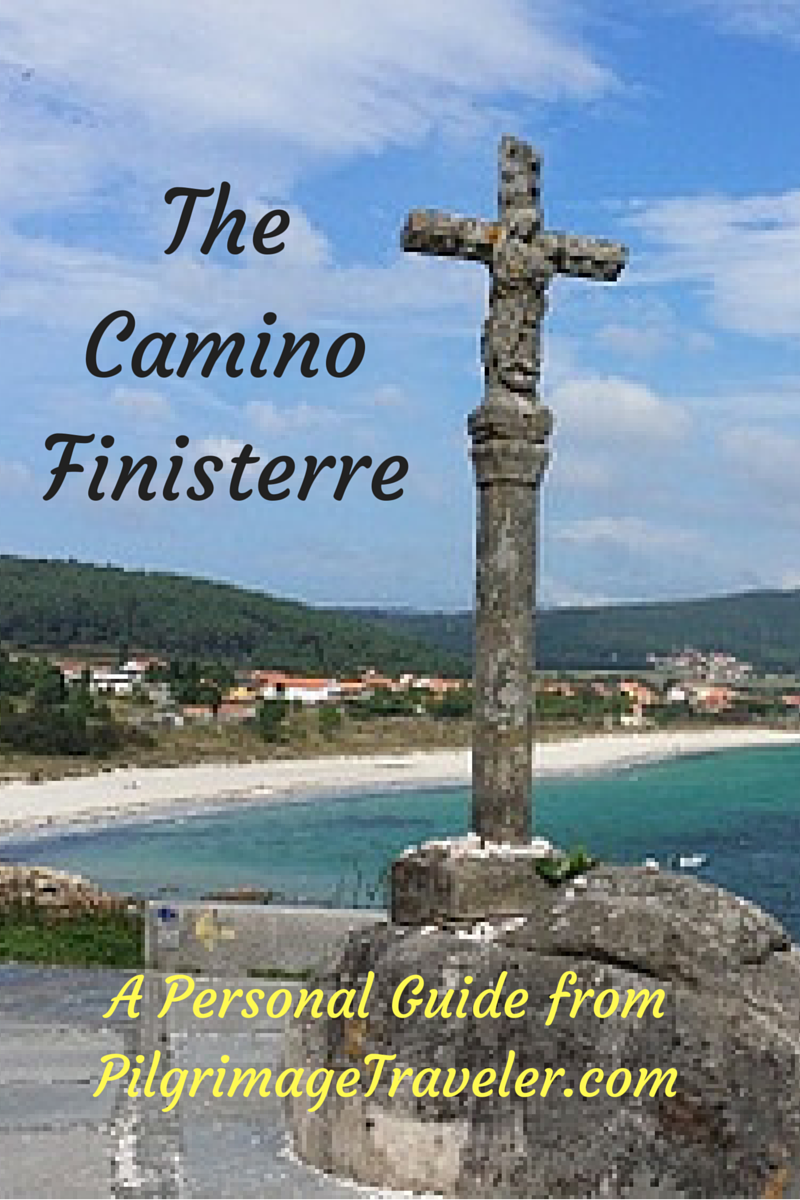




Your Opinion Matters! Comments
Have you had a similar experience, have some advice to give, or have something else you'd like to share? We would love to hear from you! Please leave us a comment in the box below.